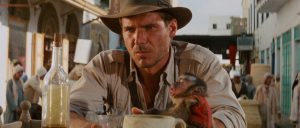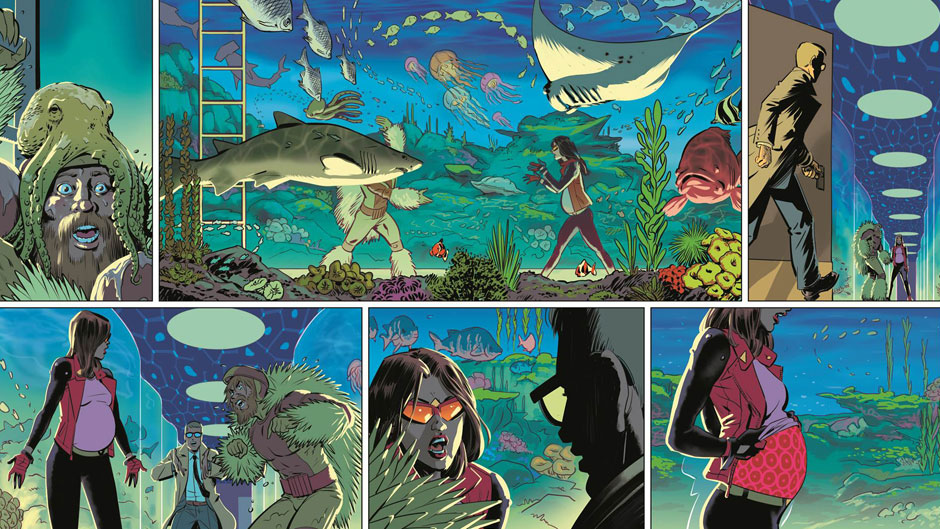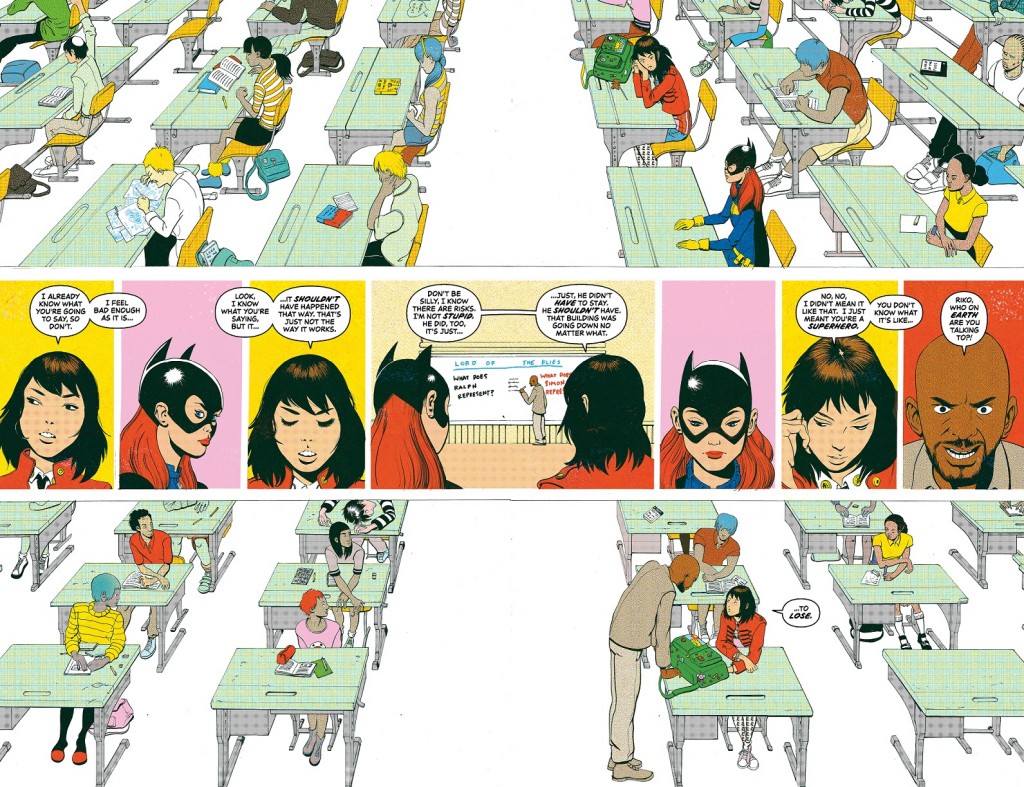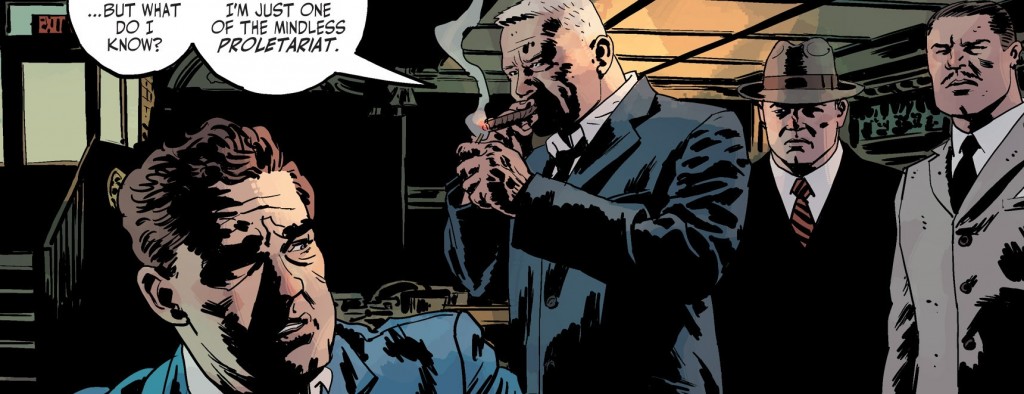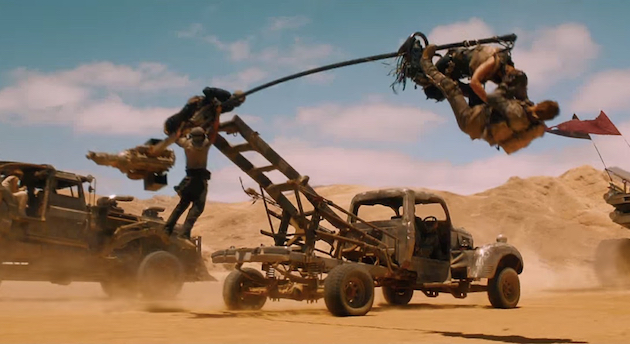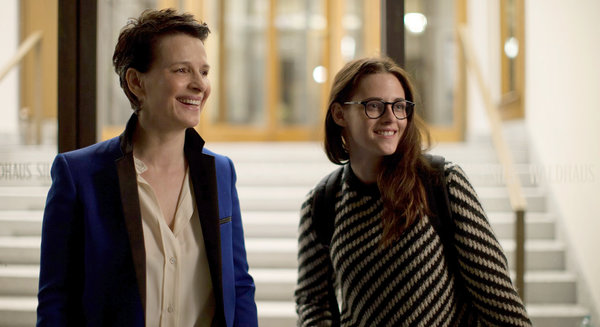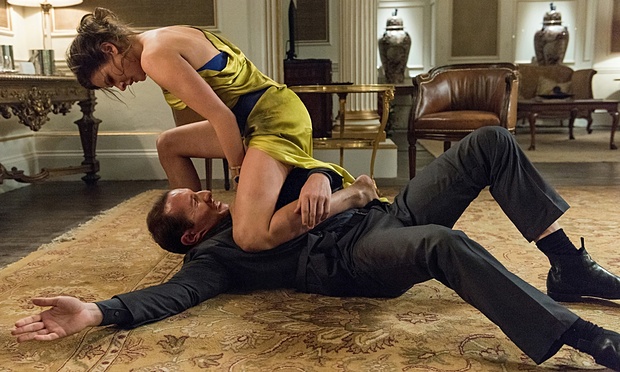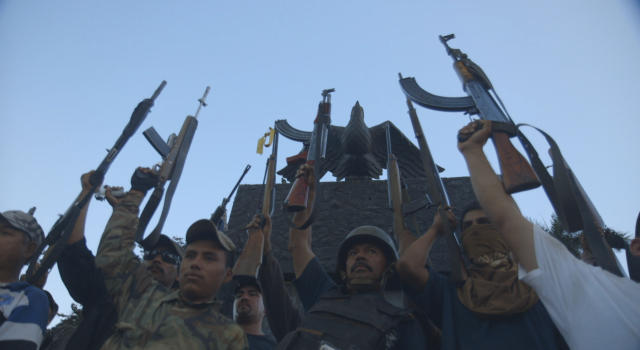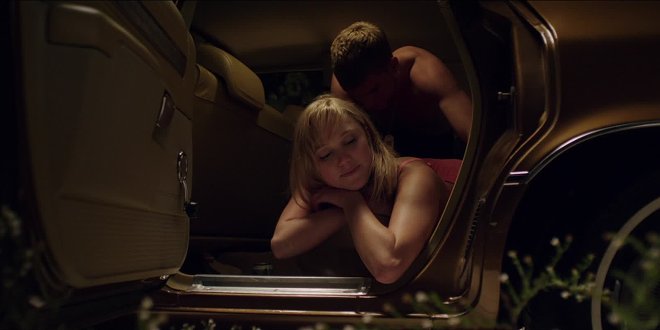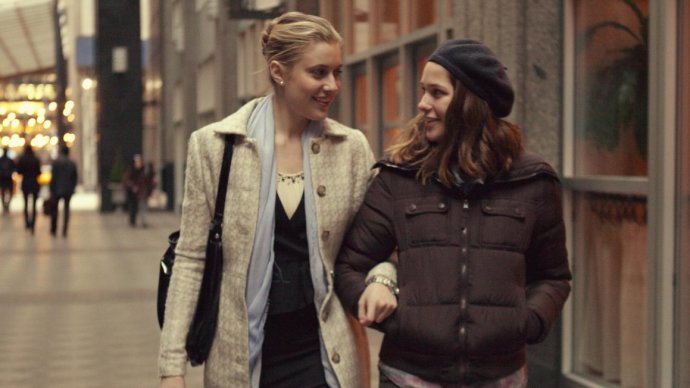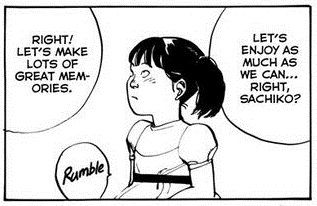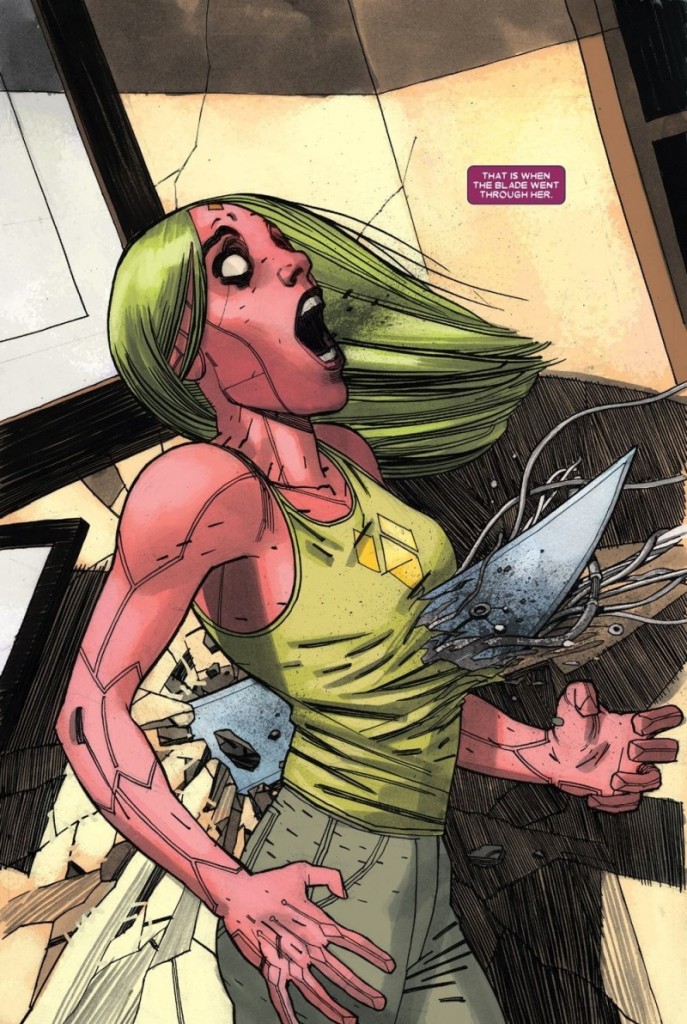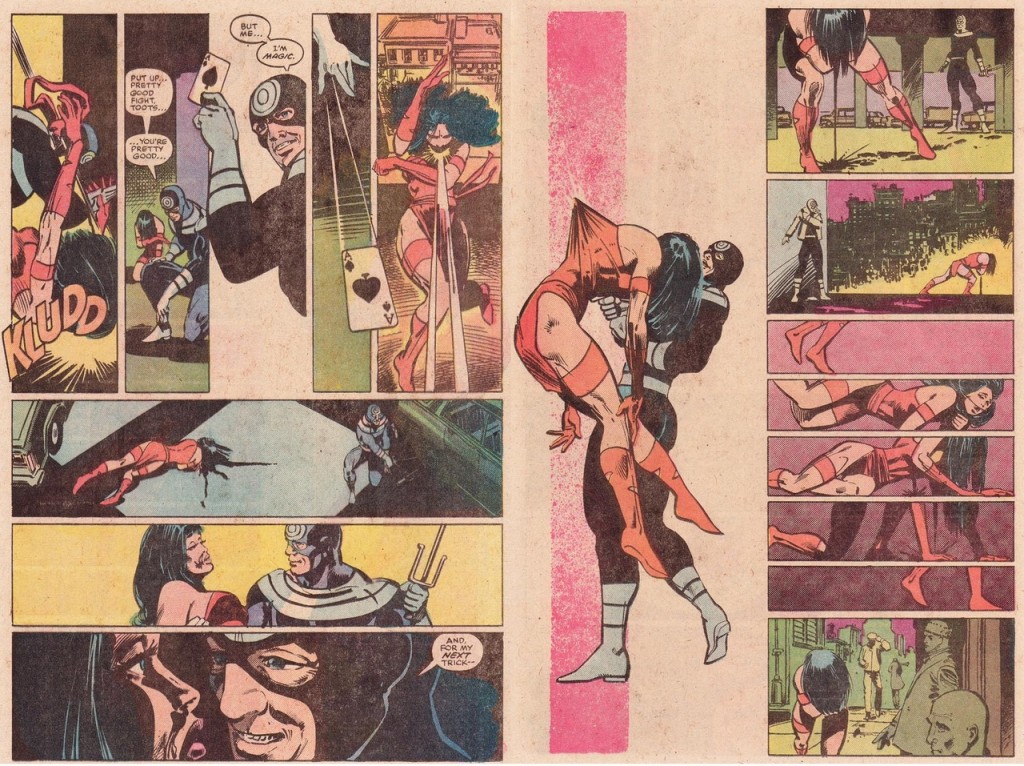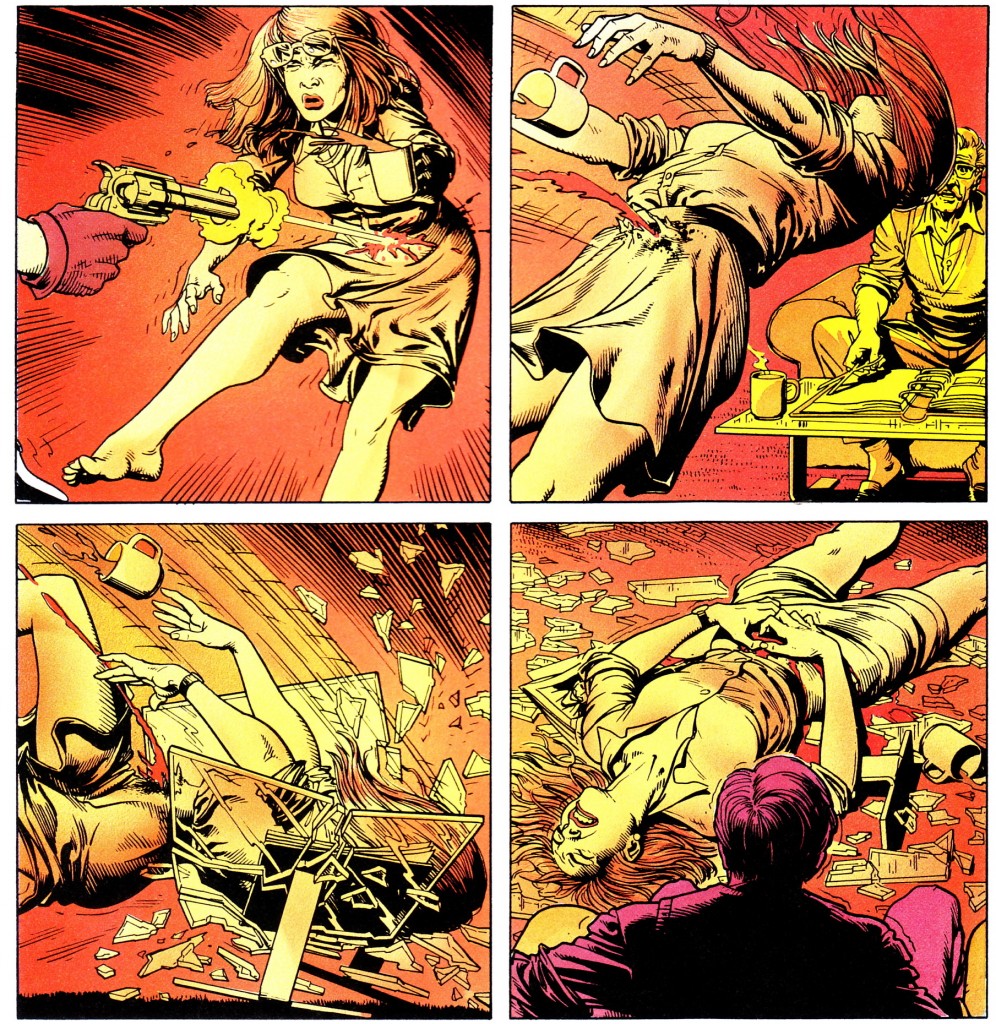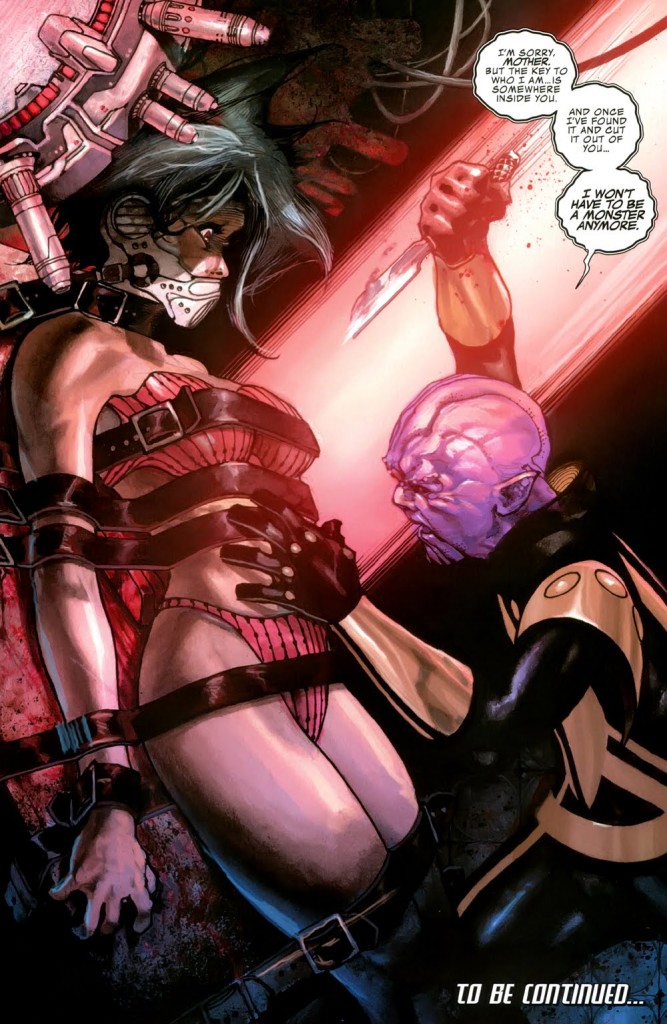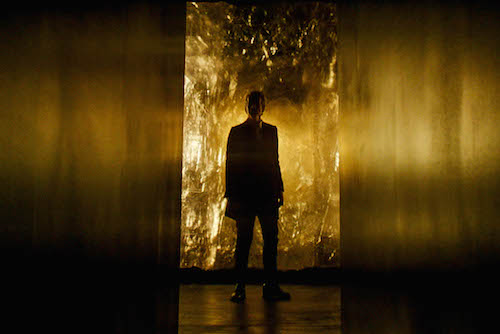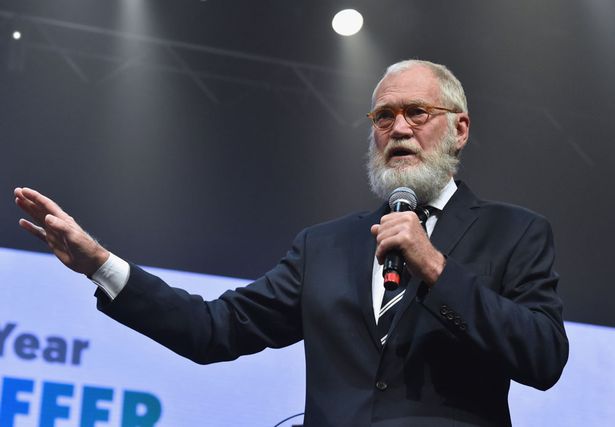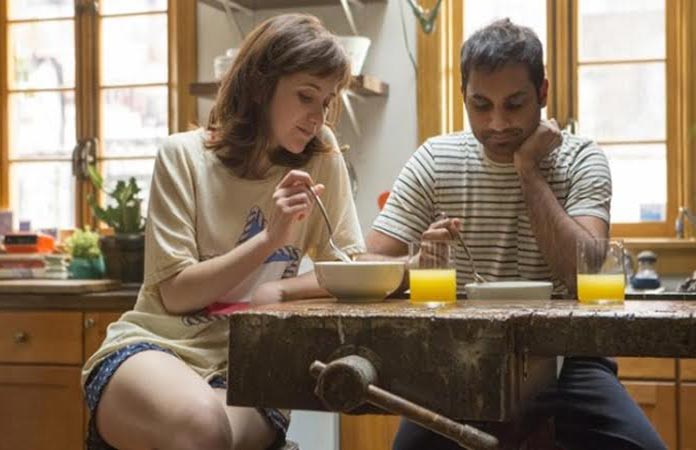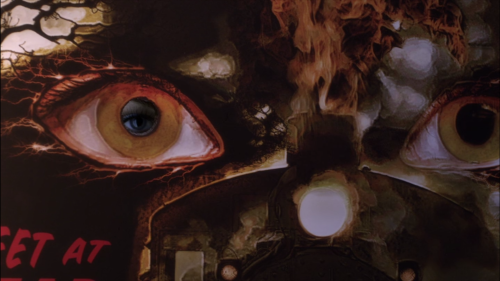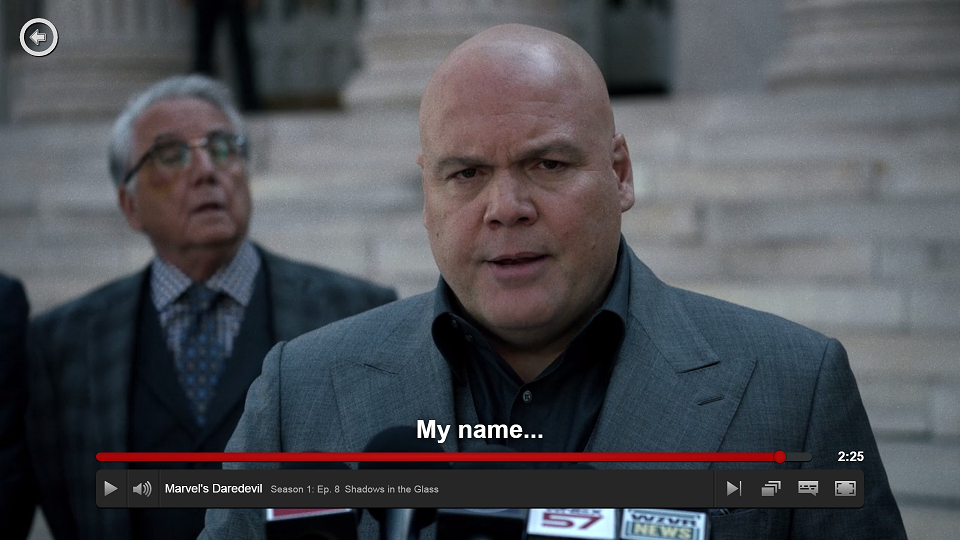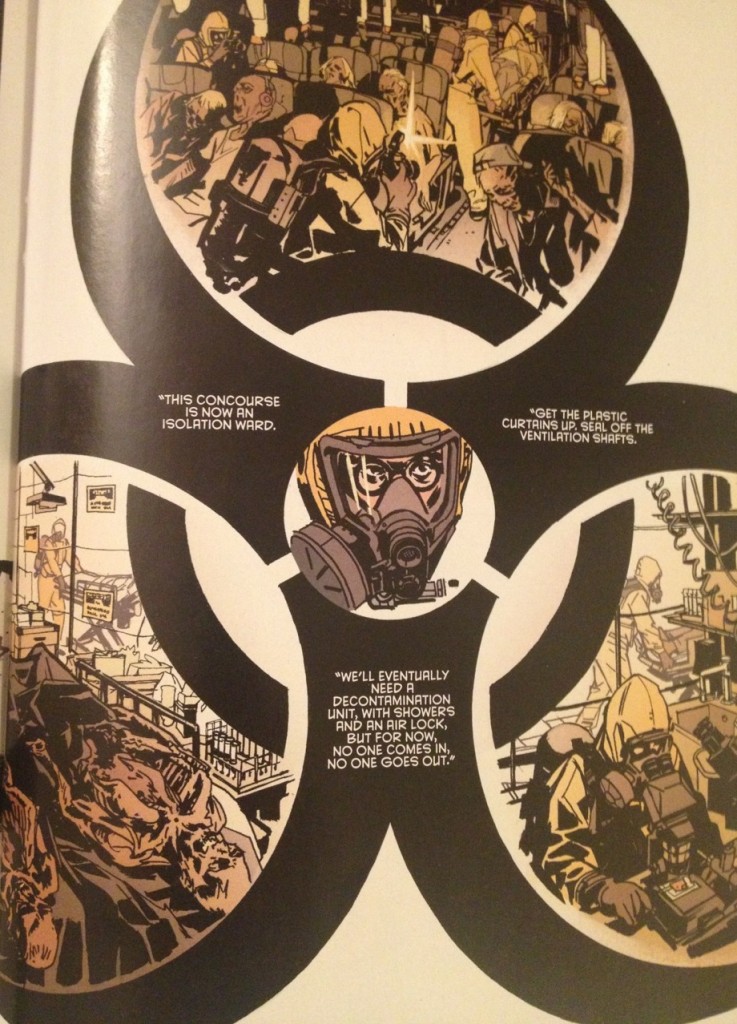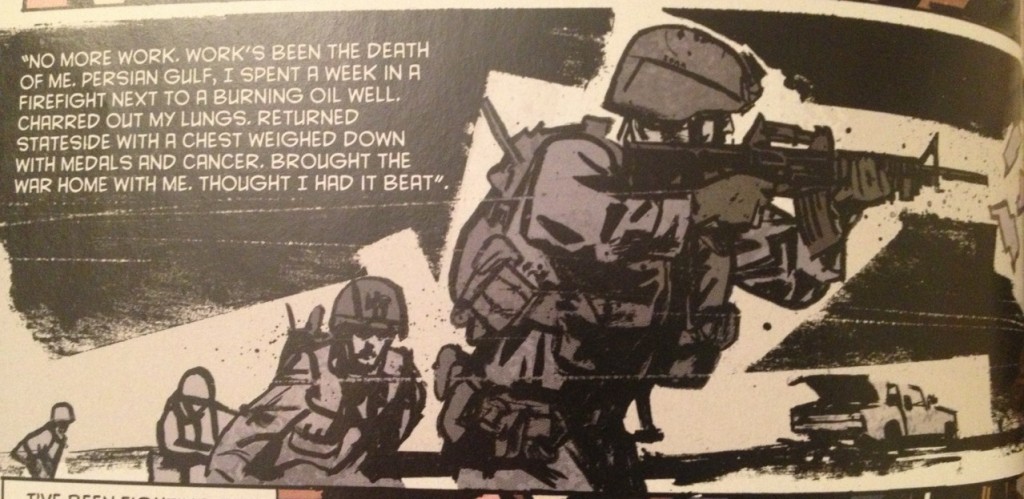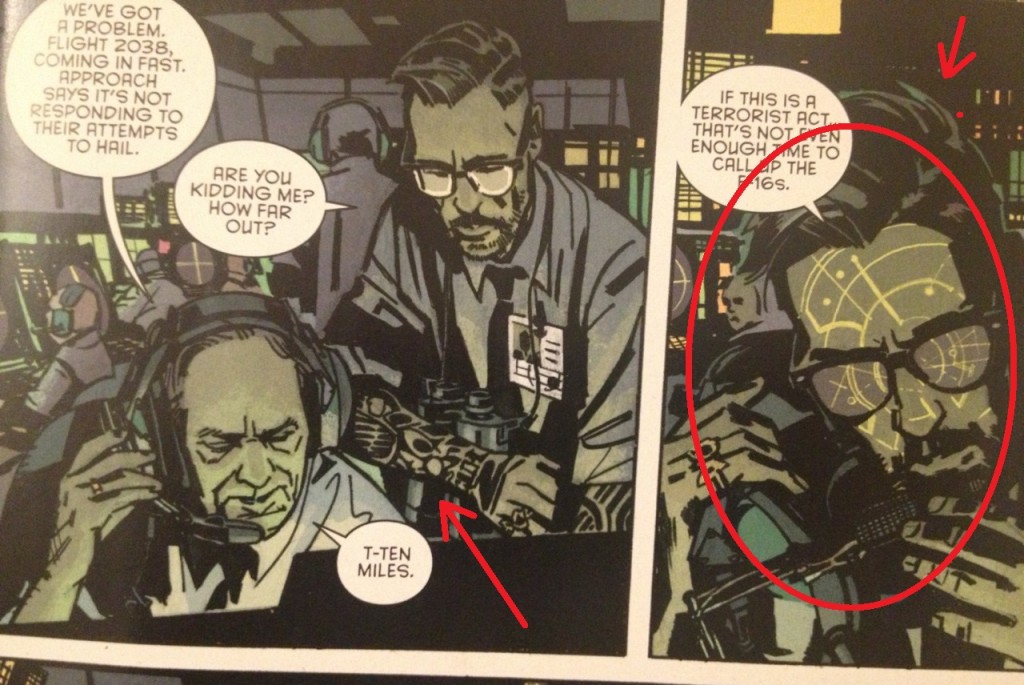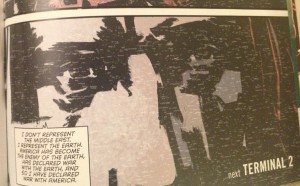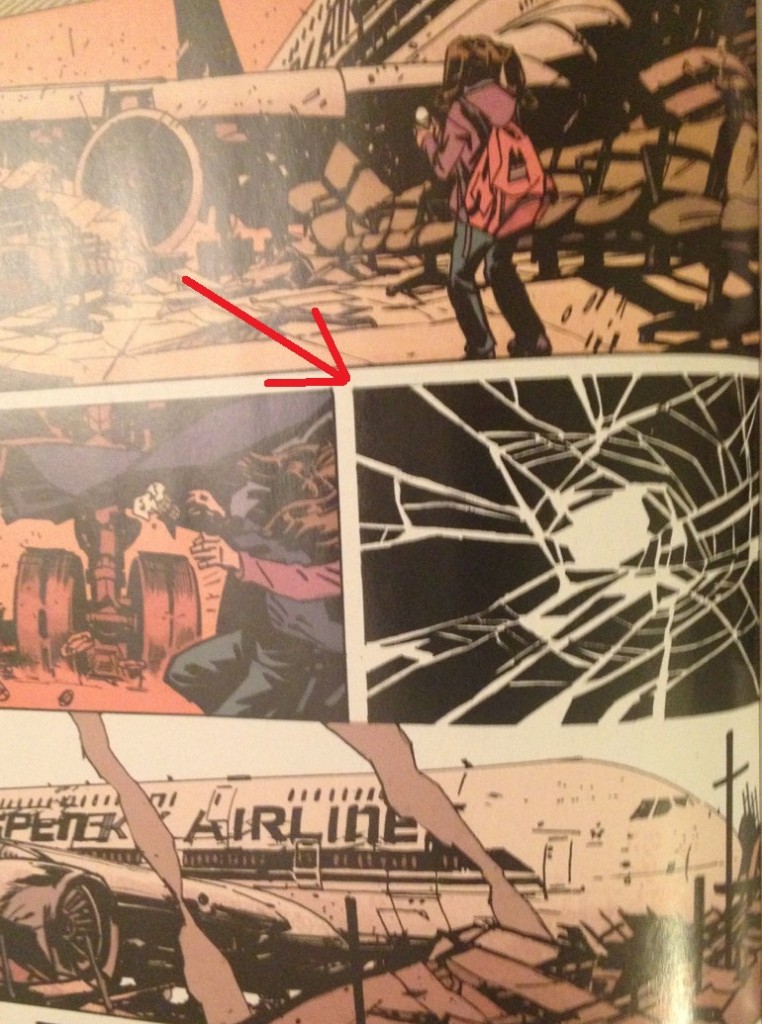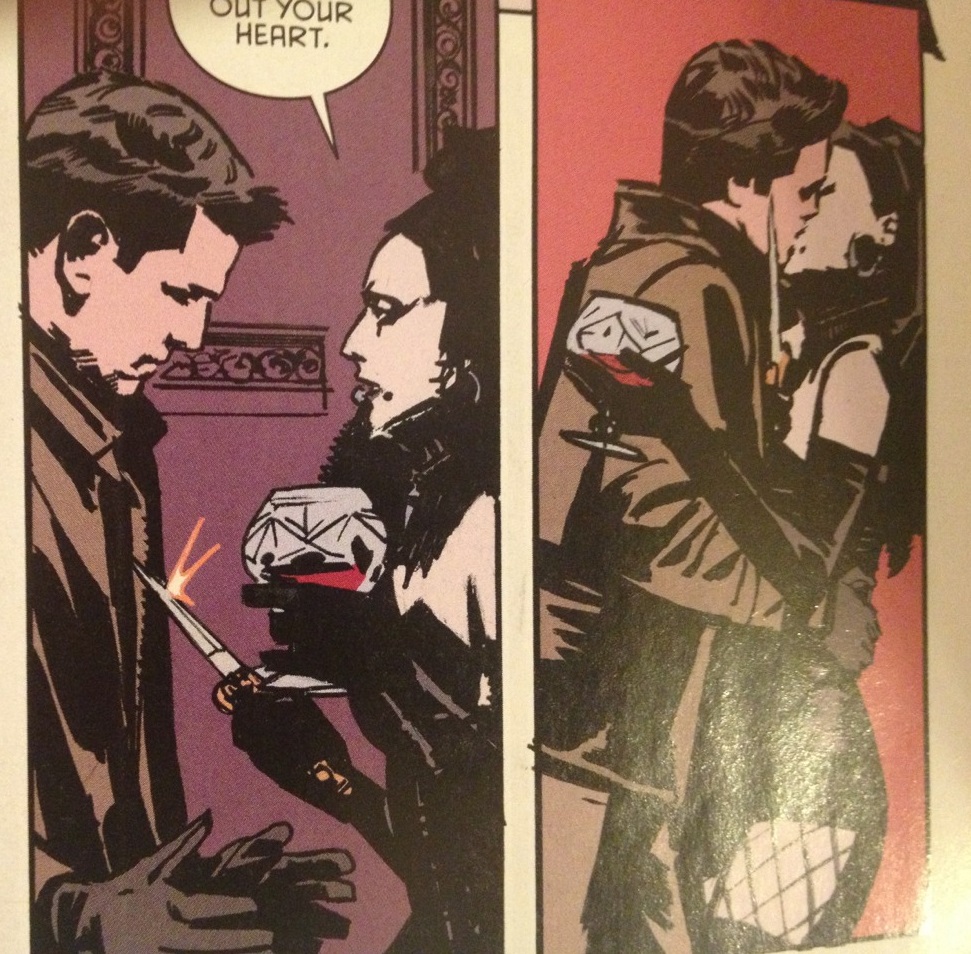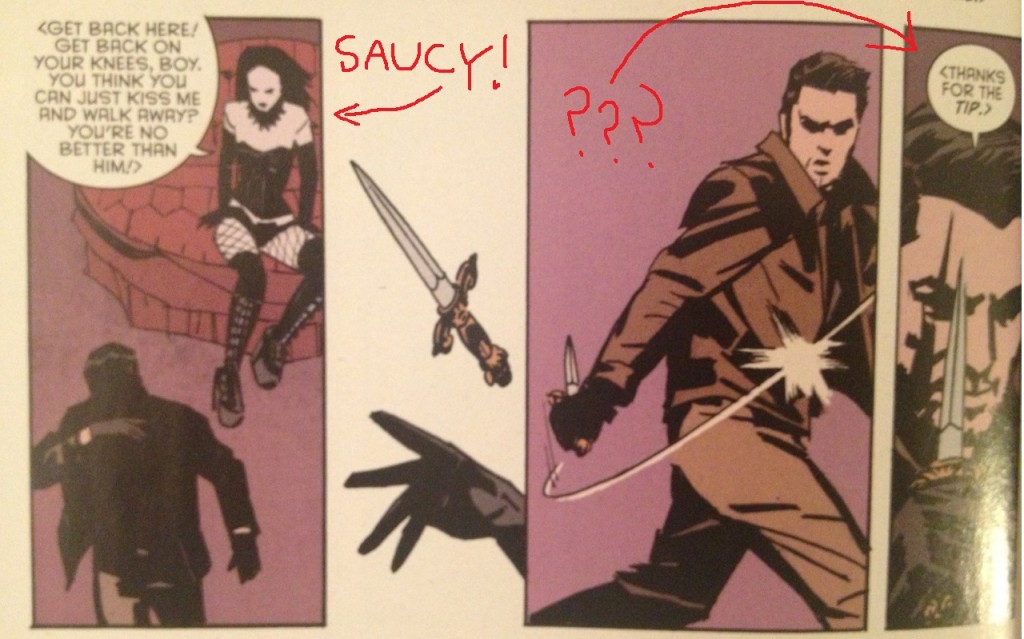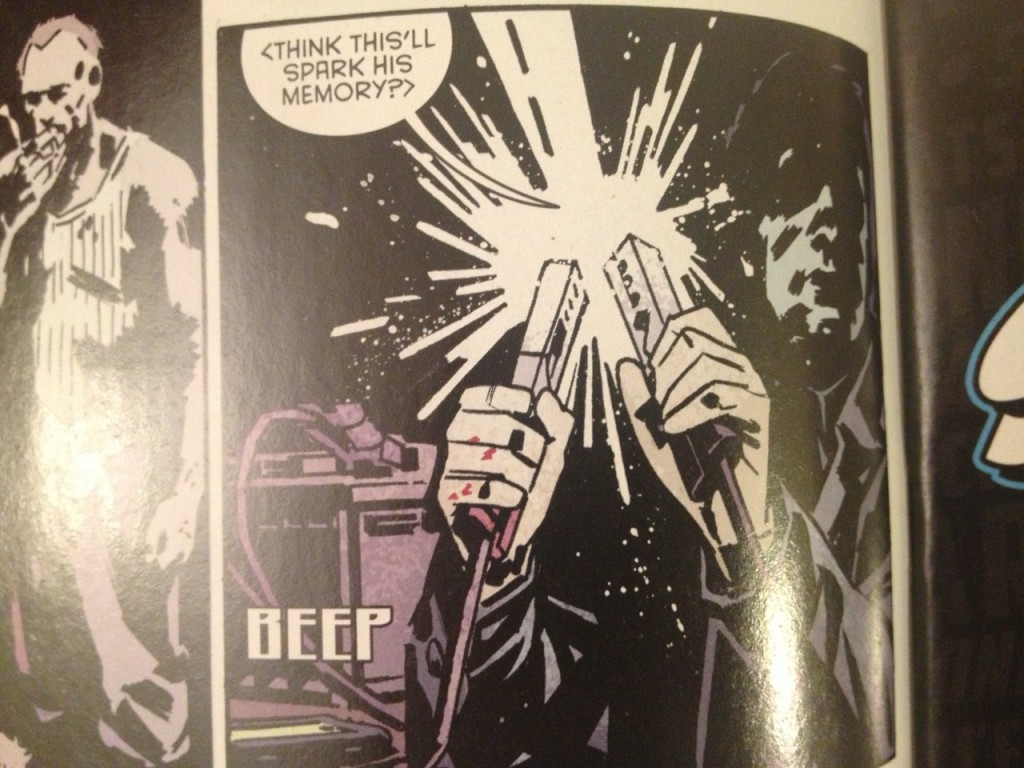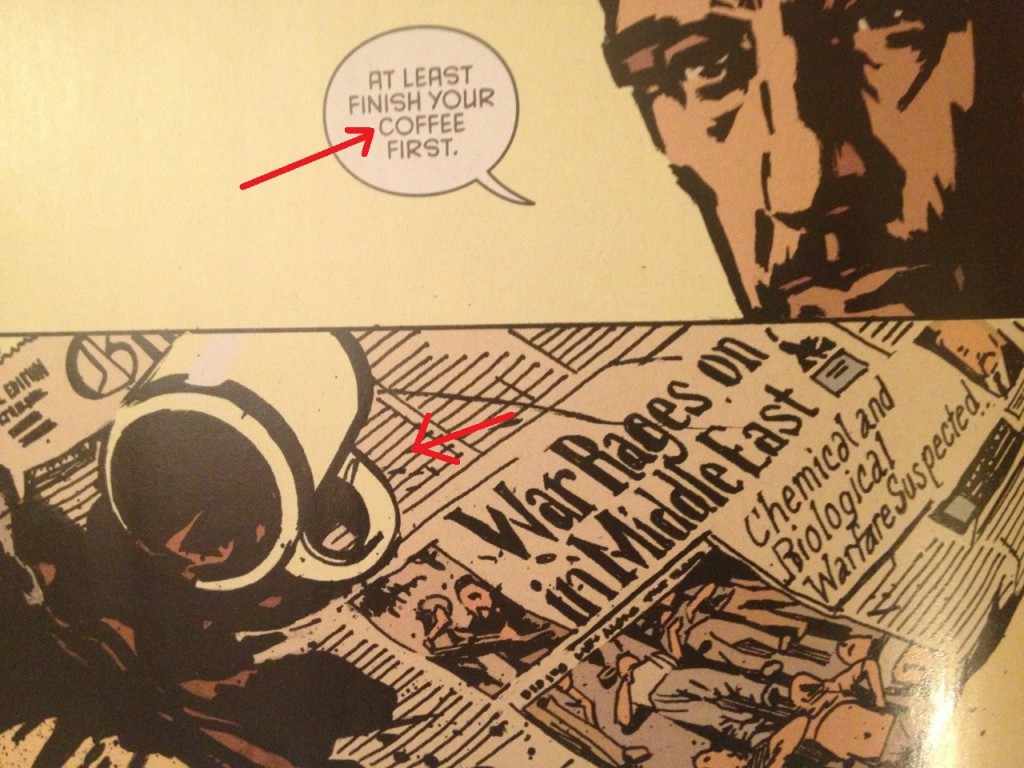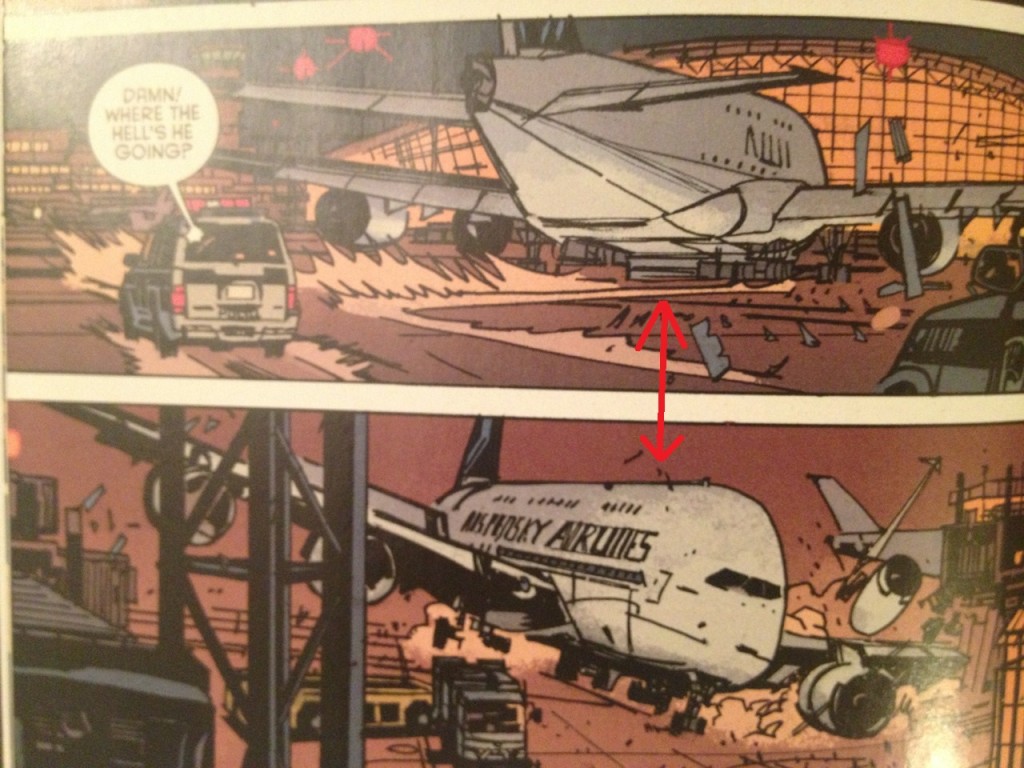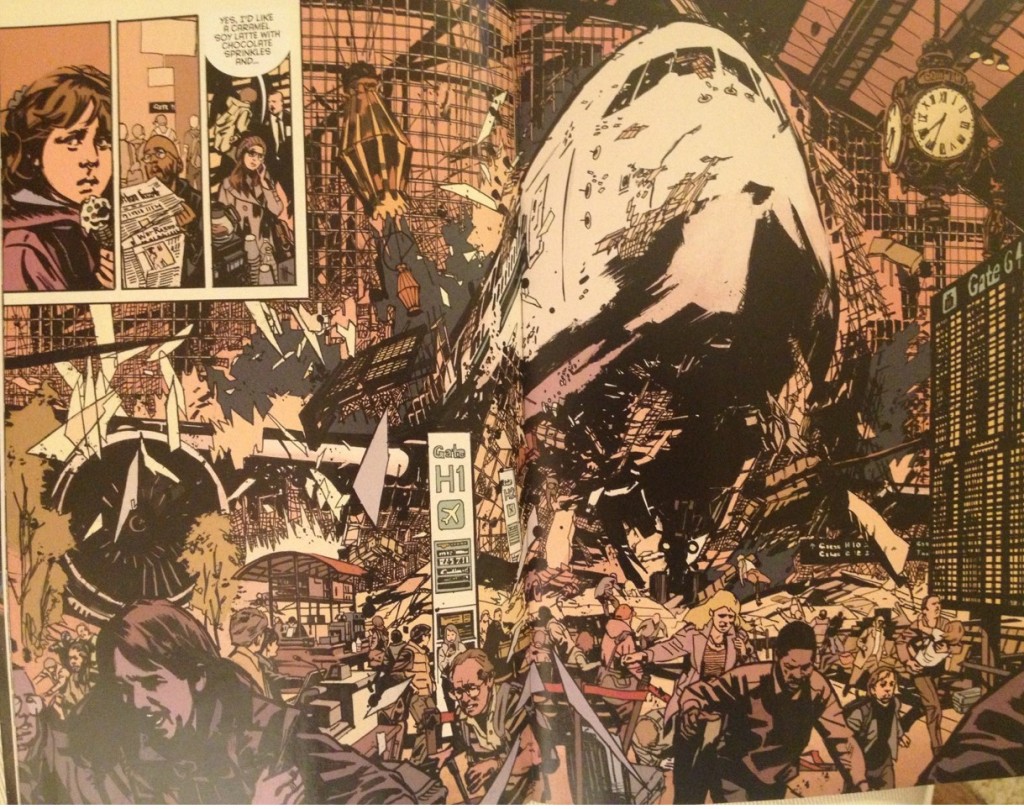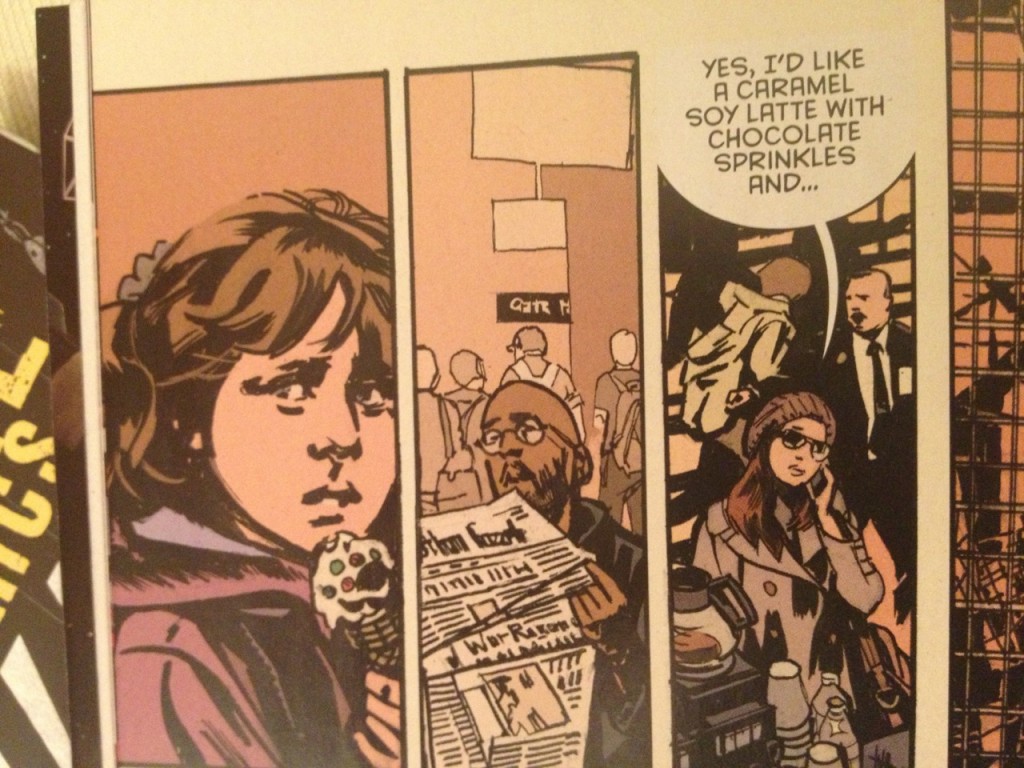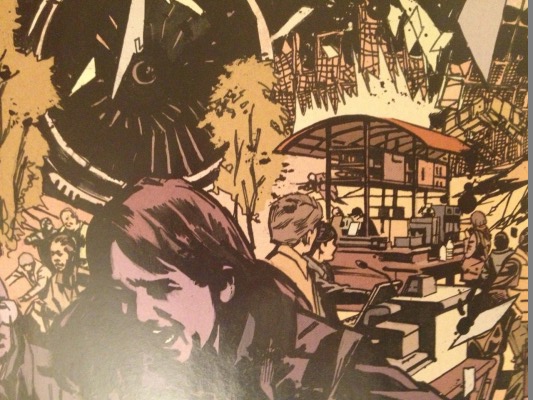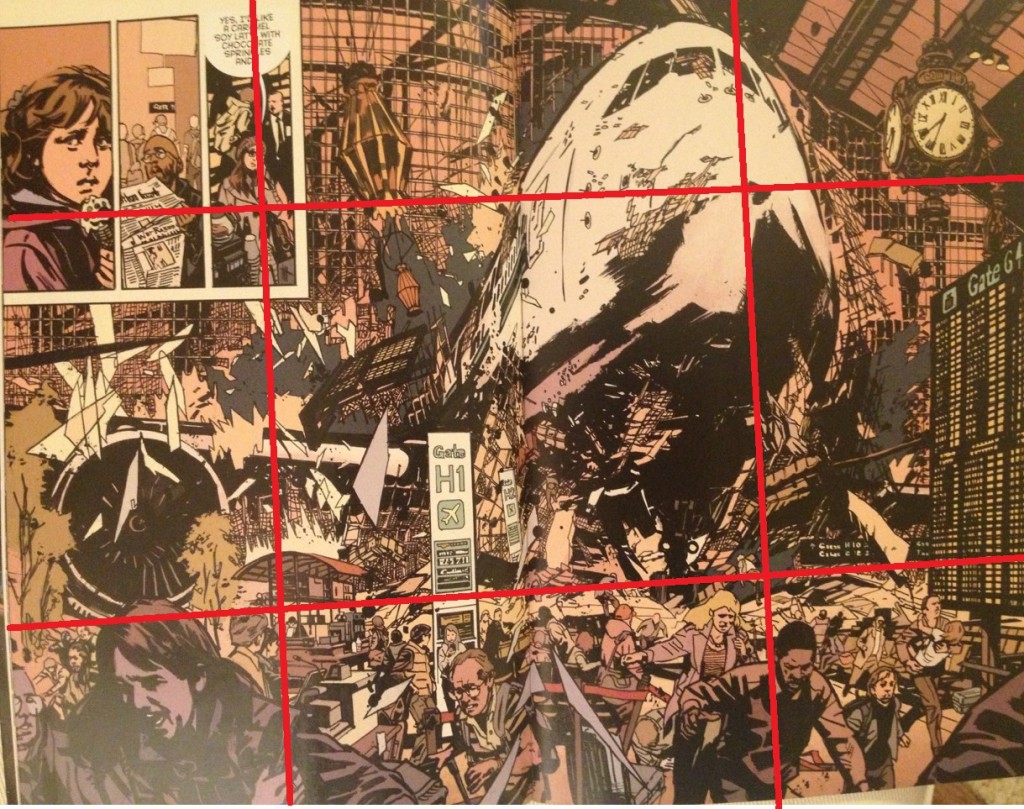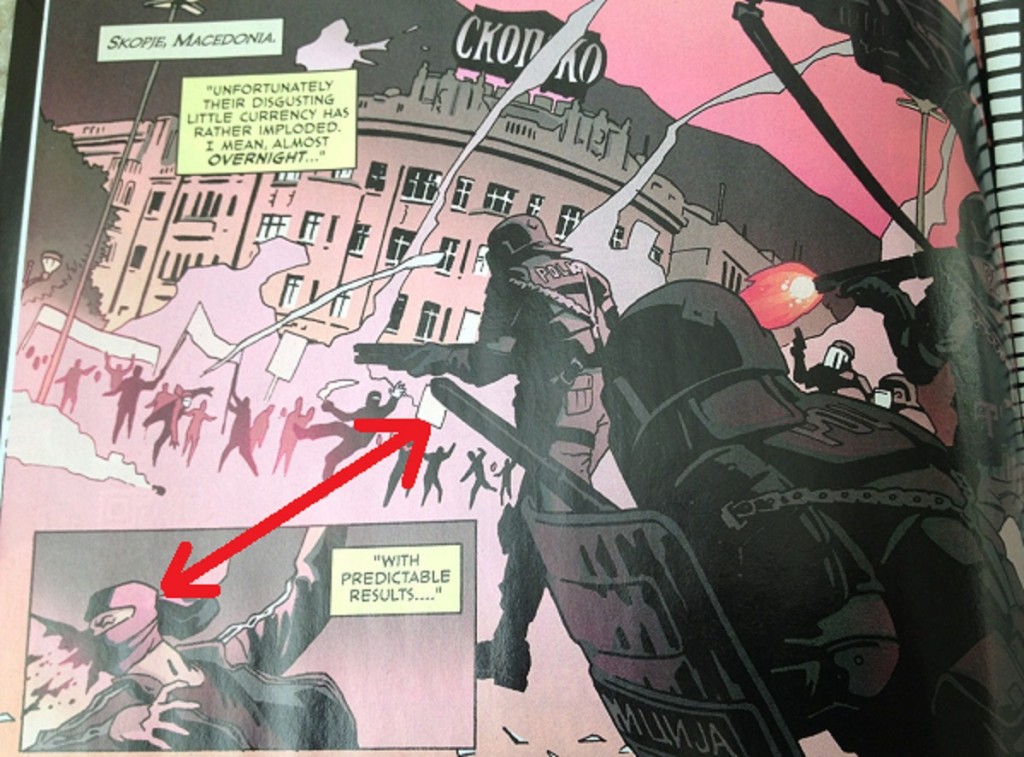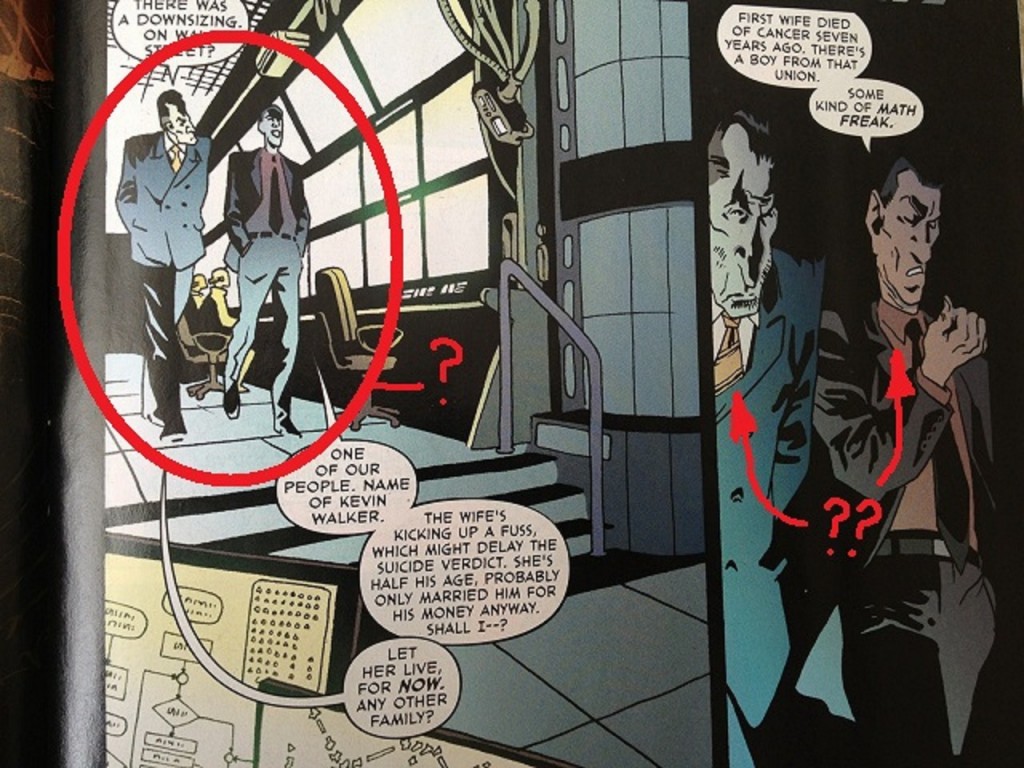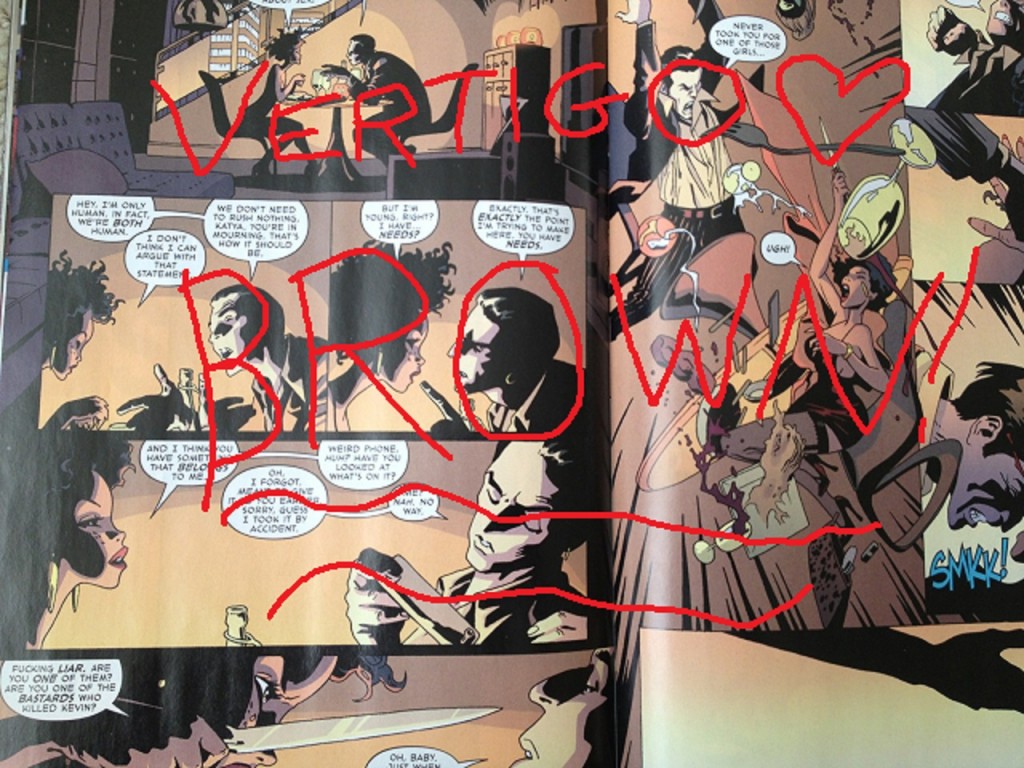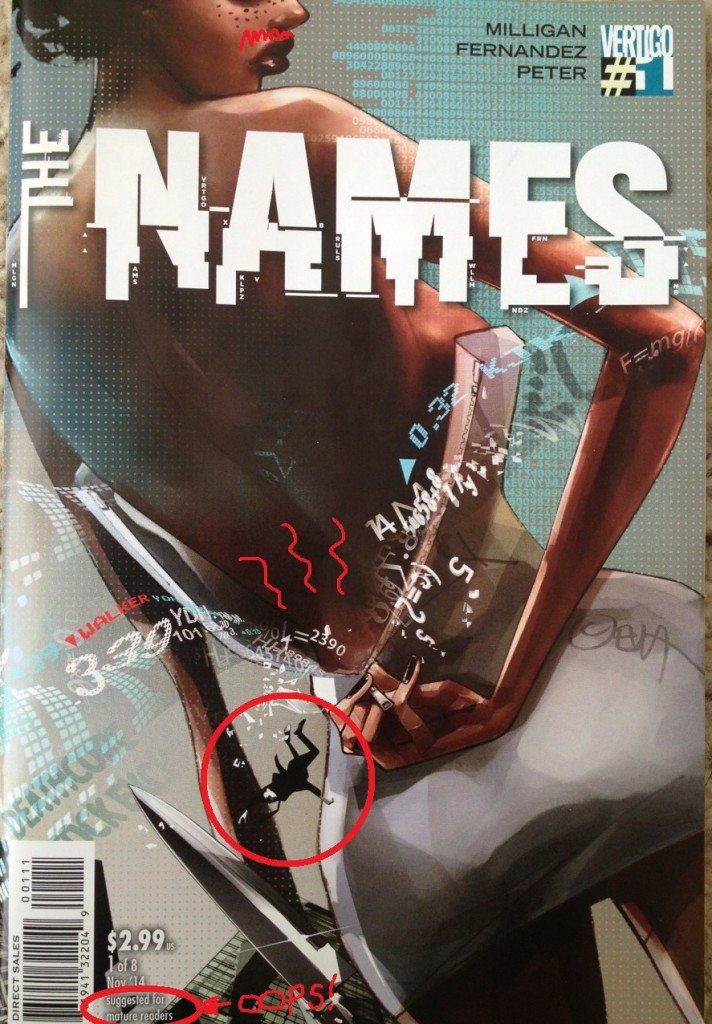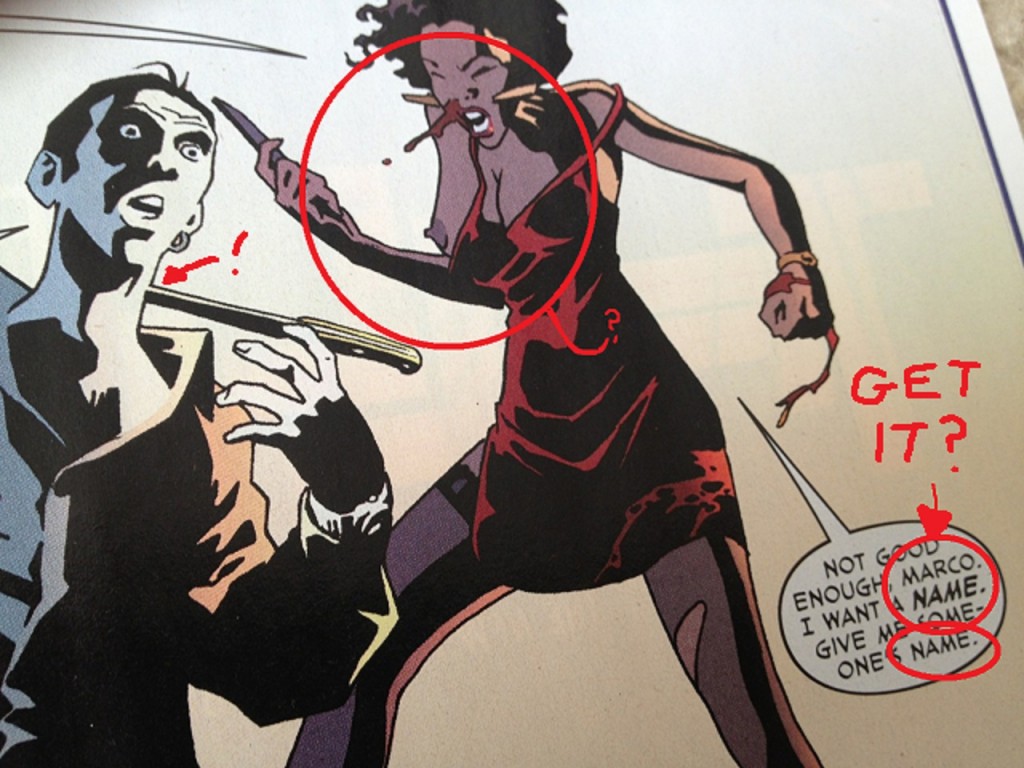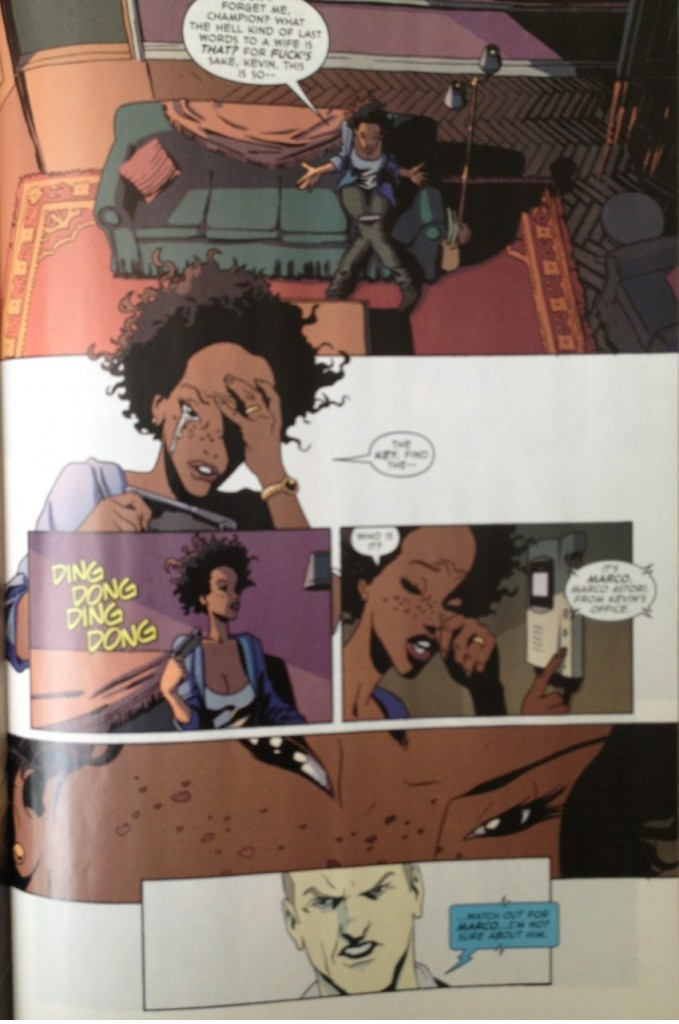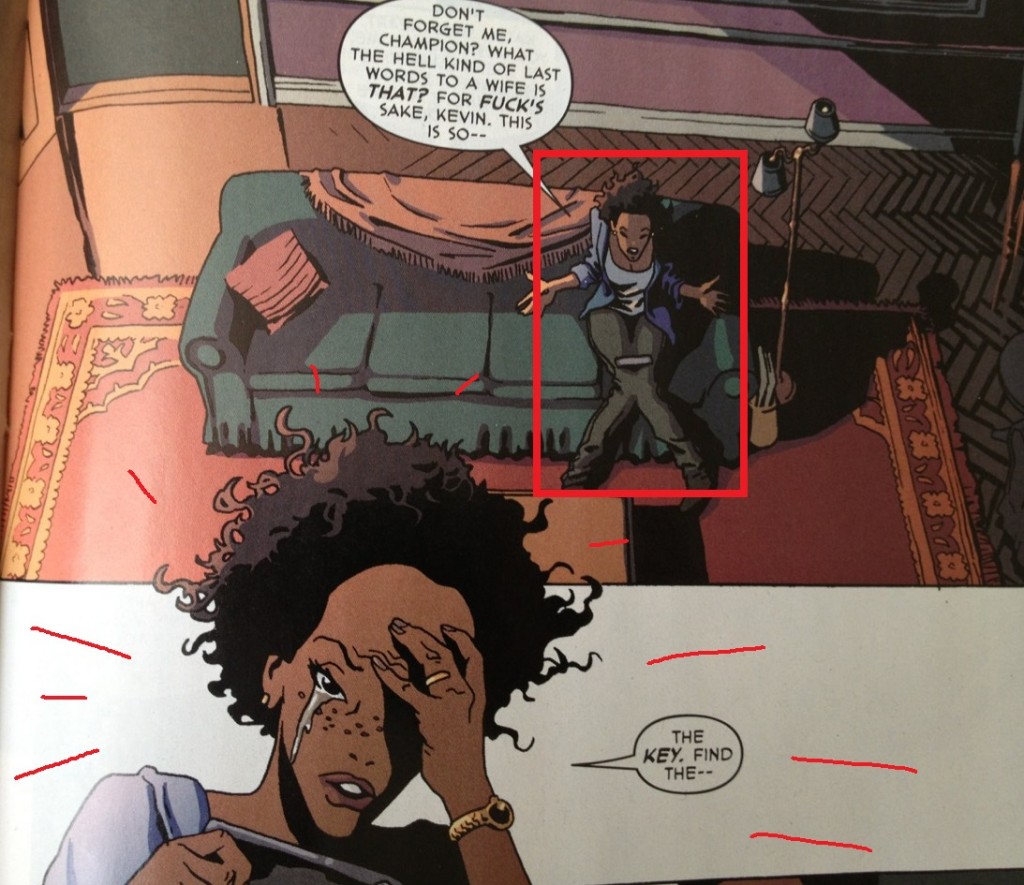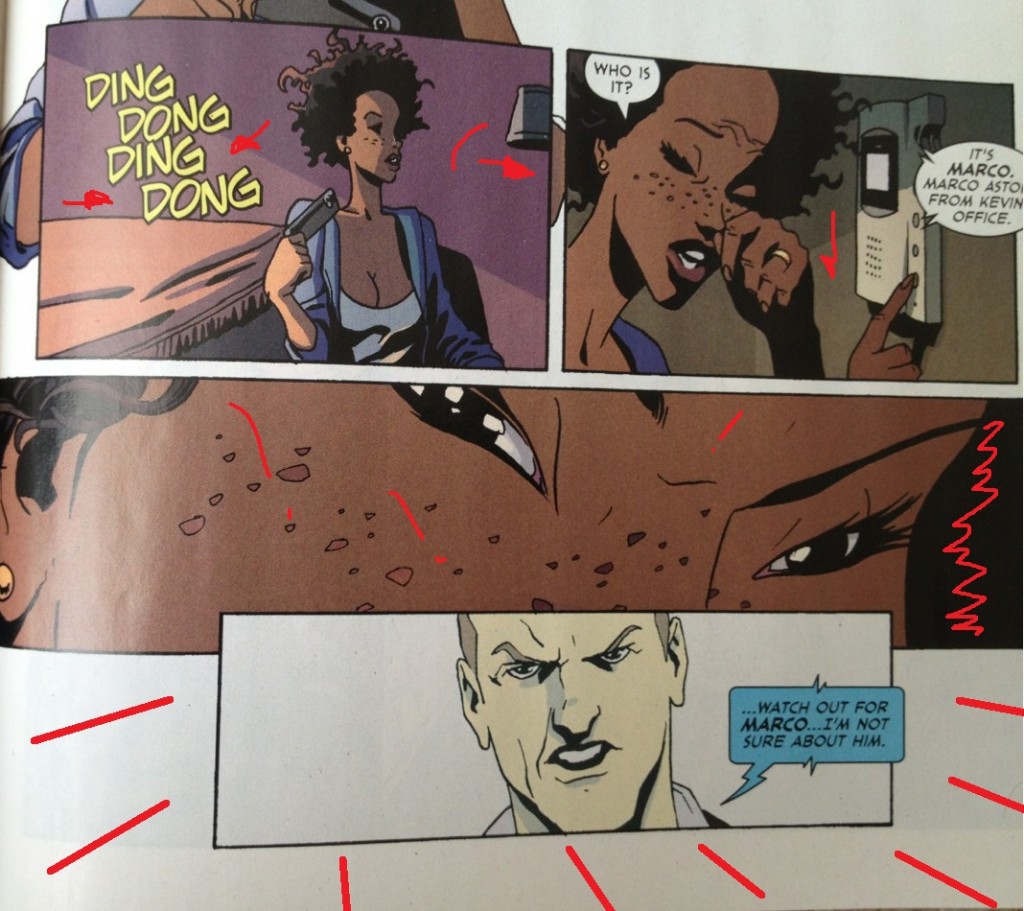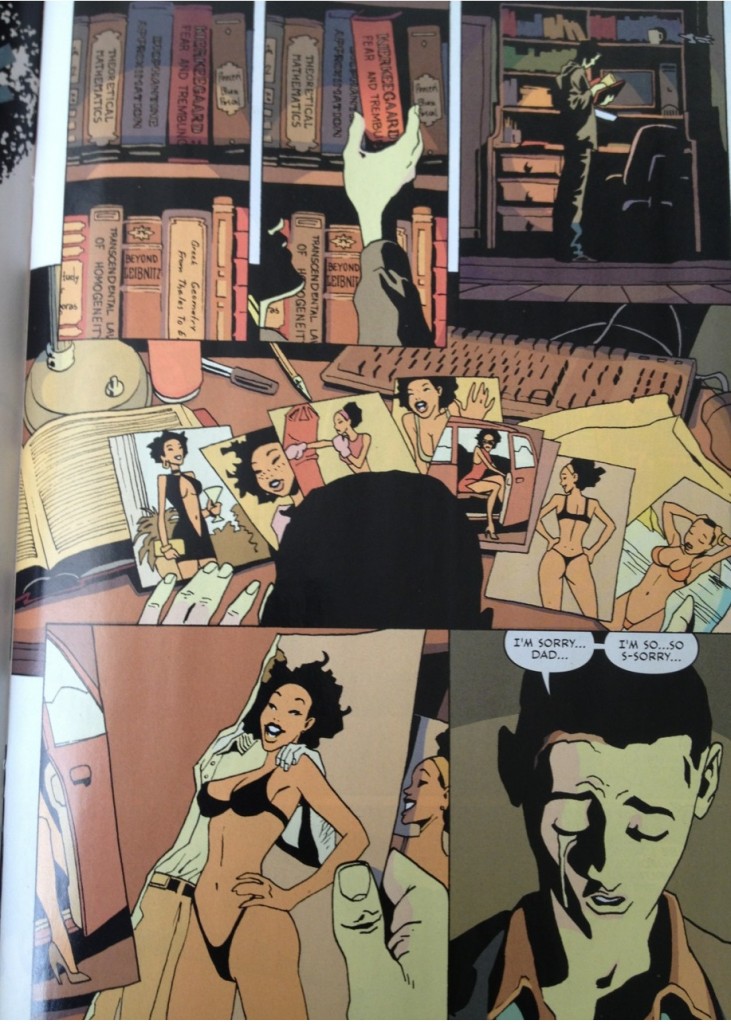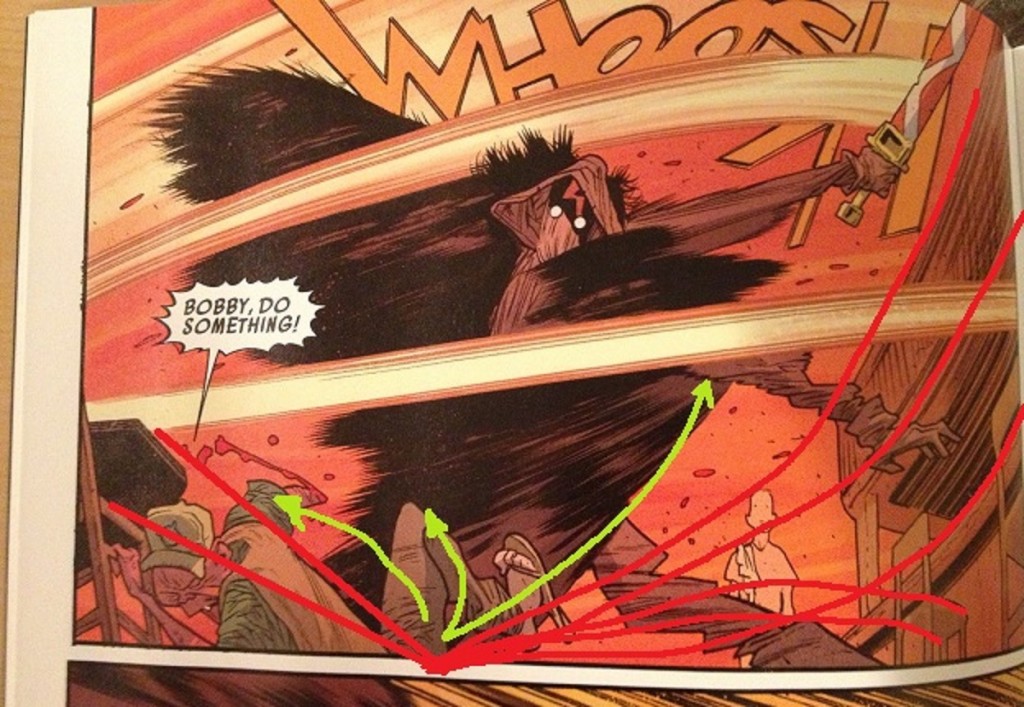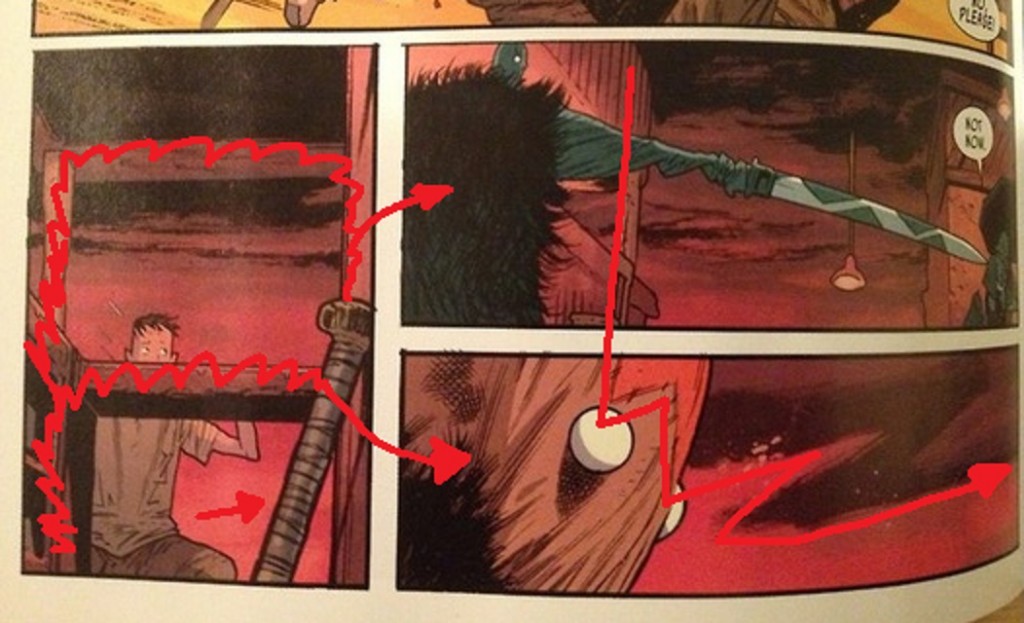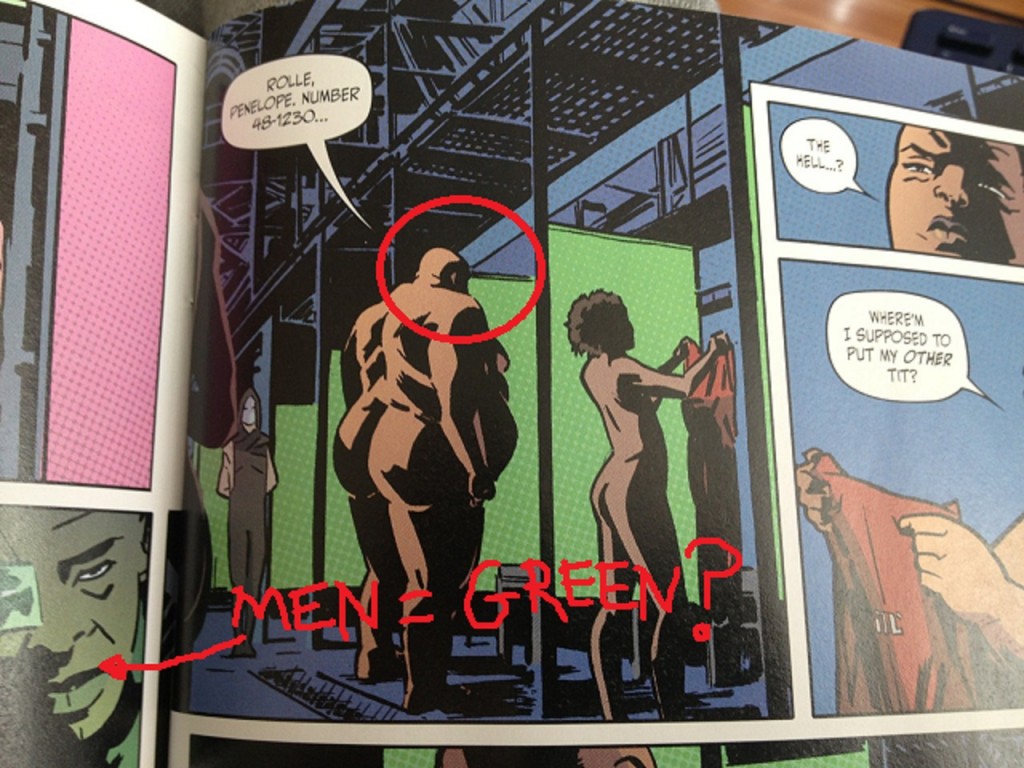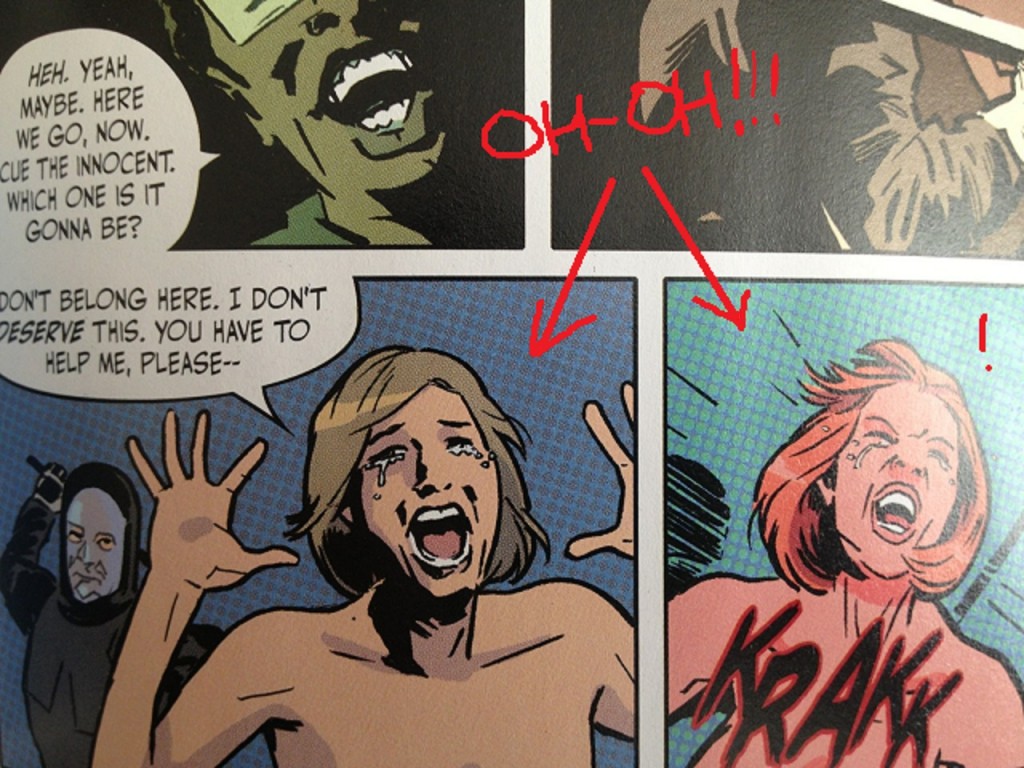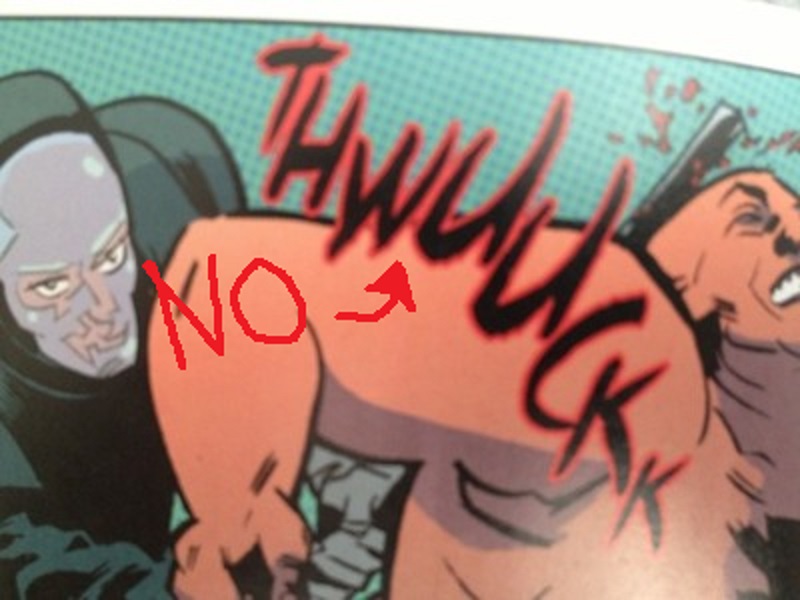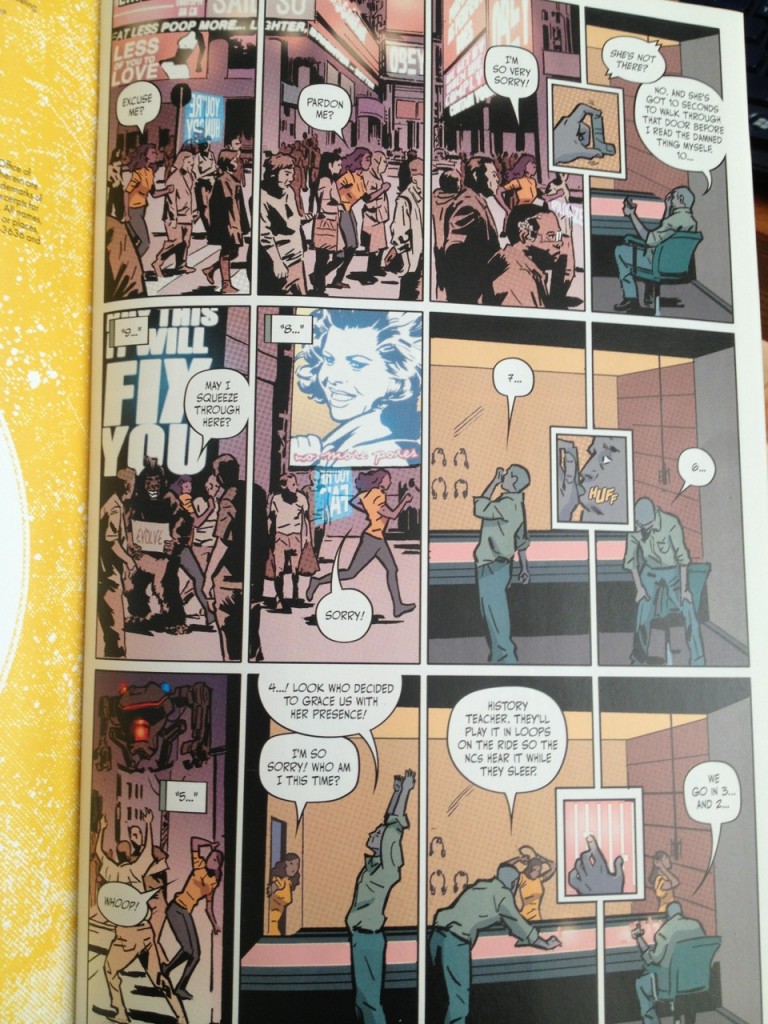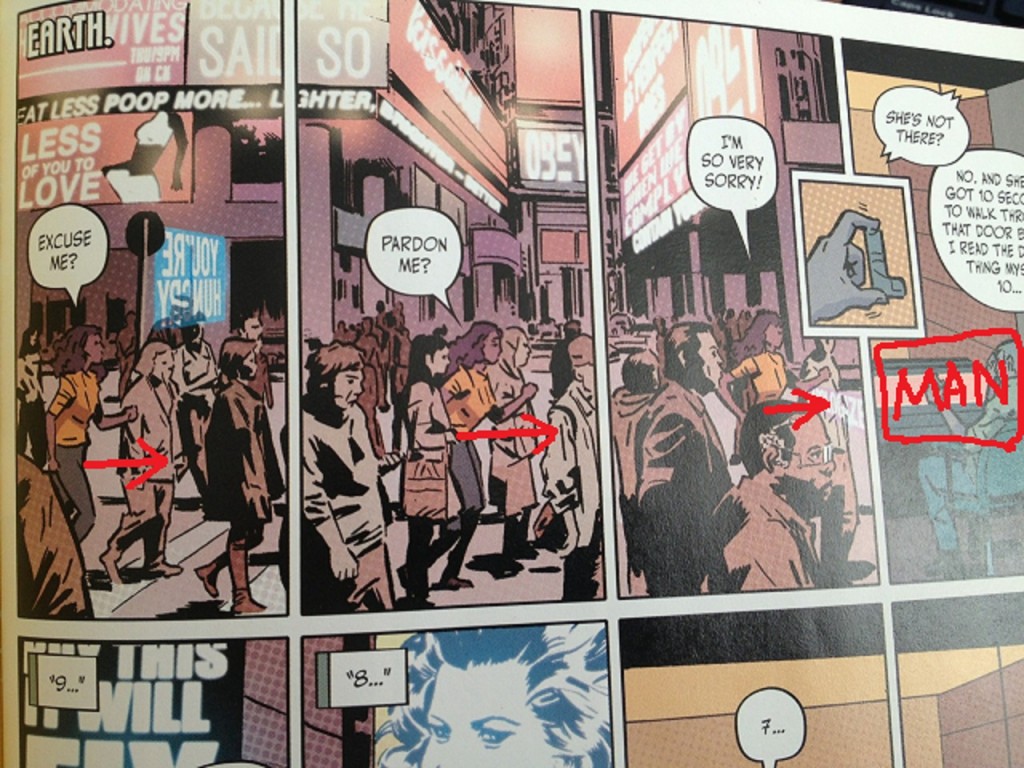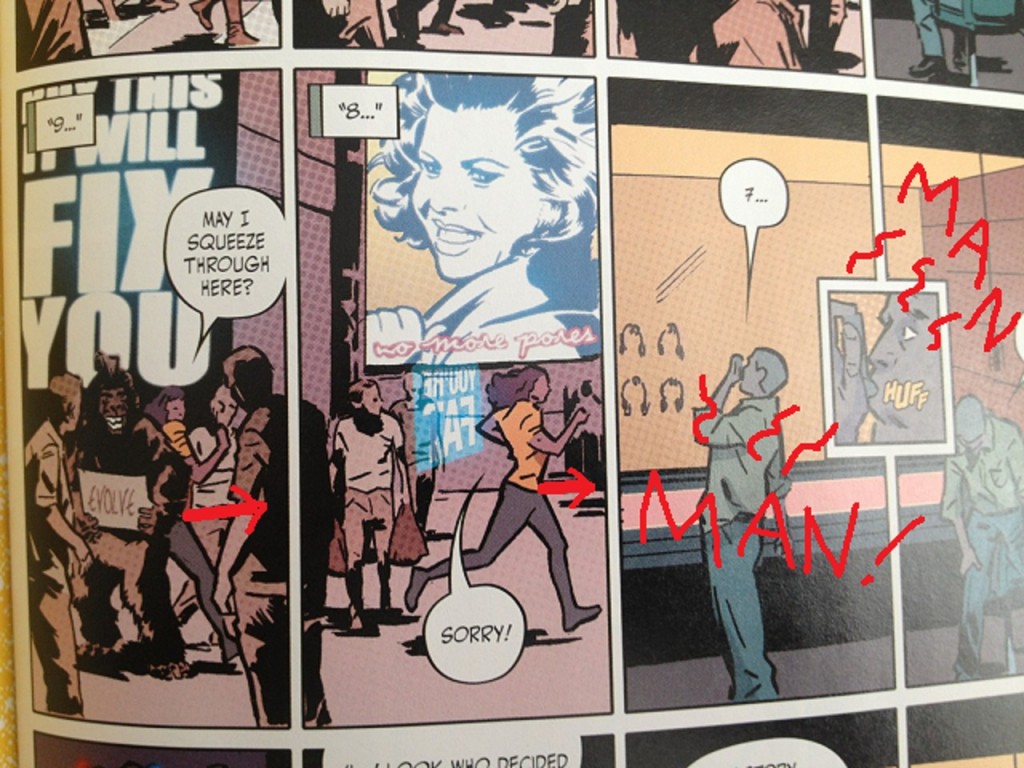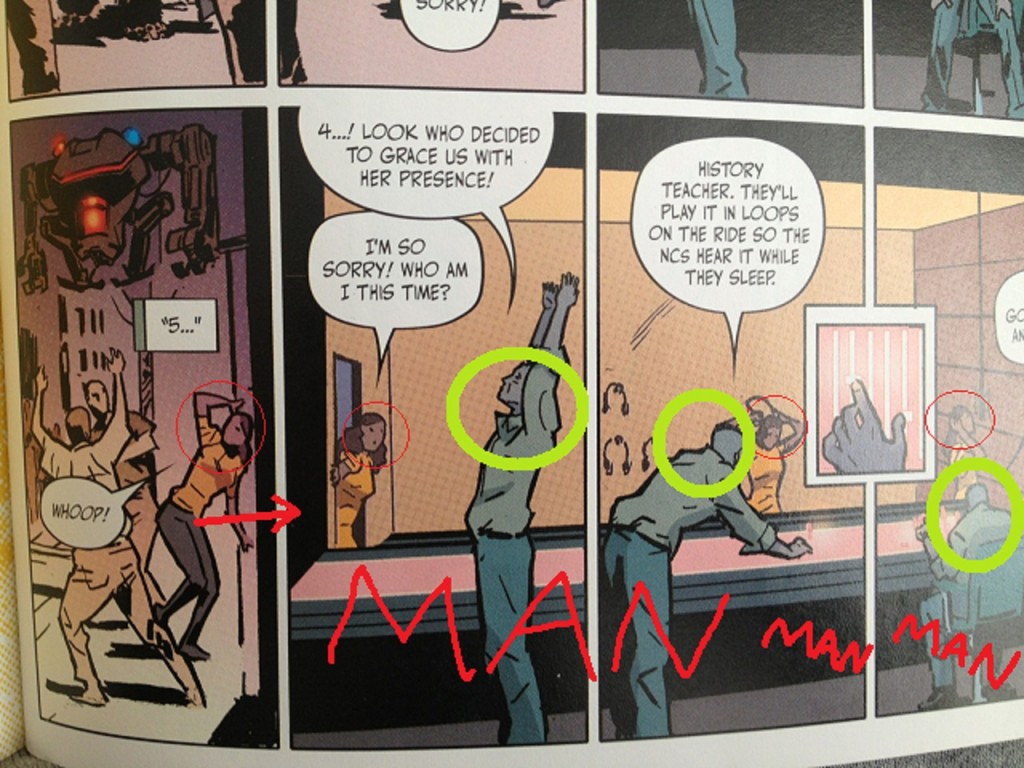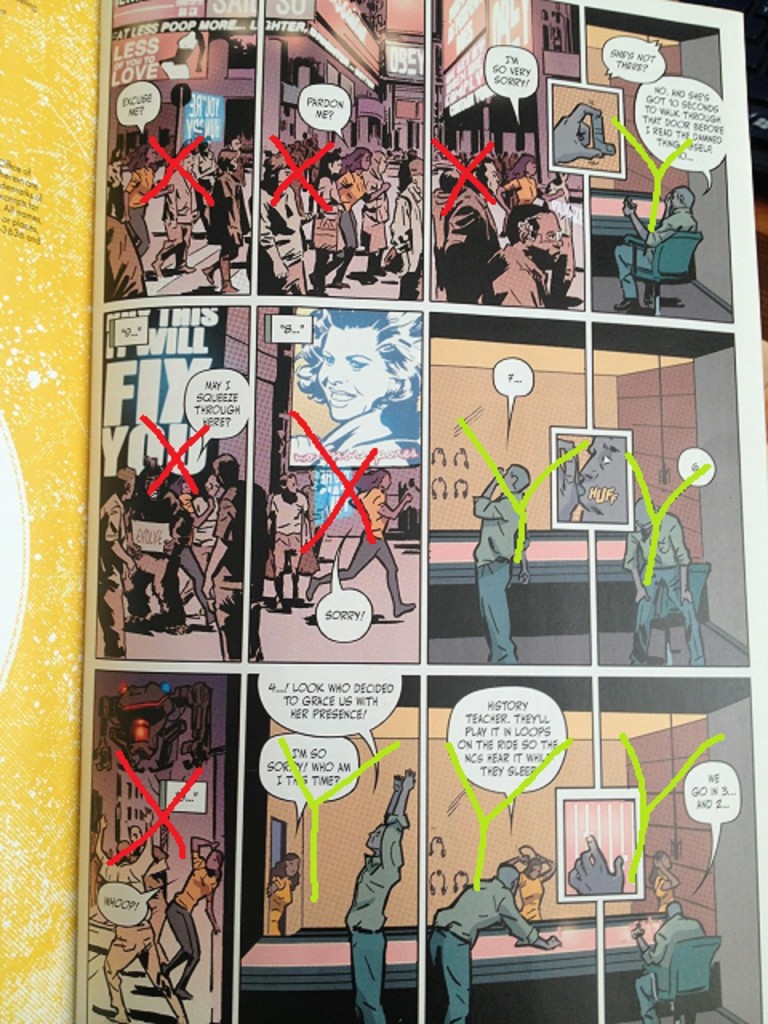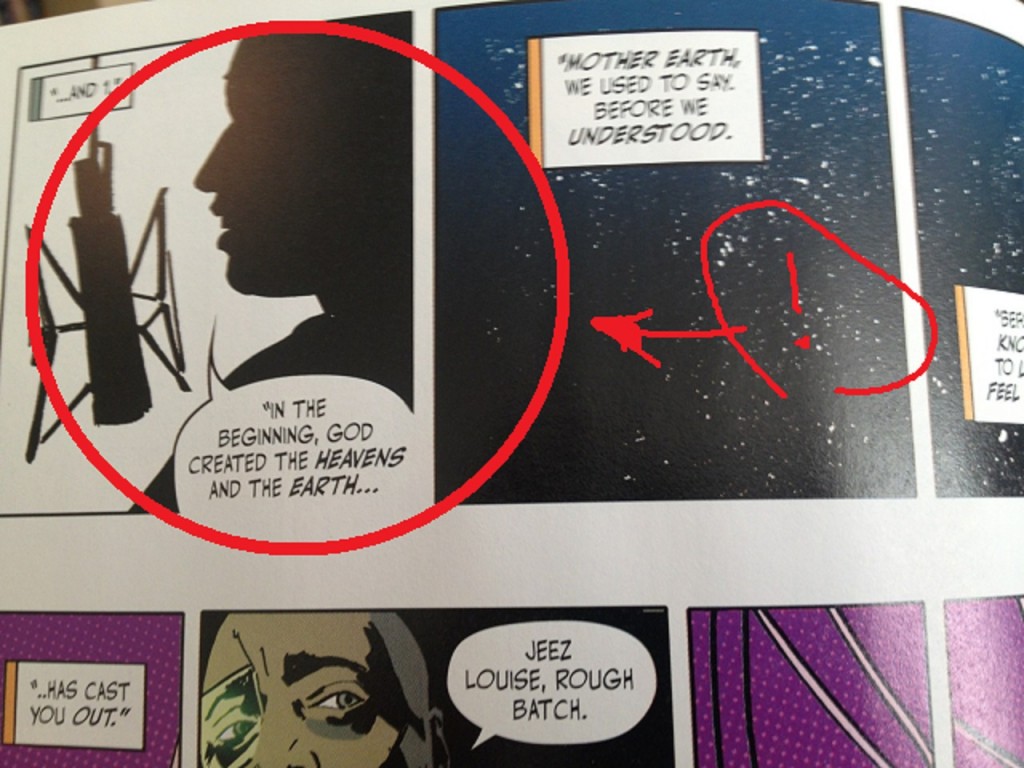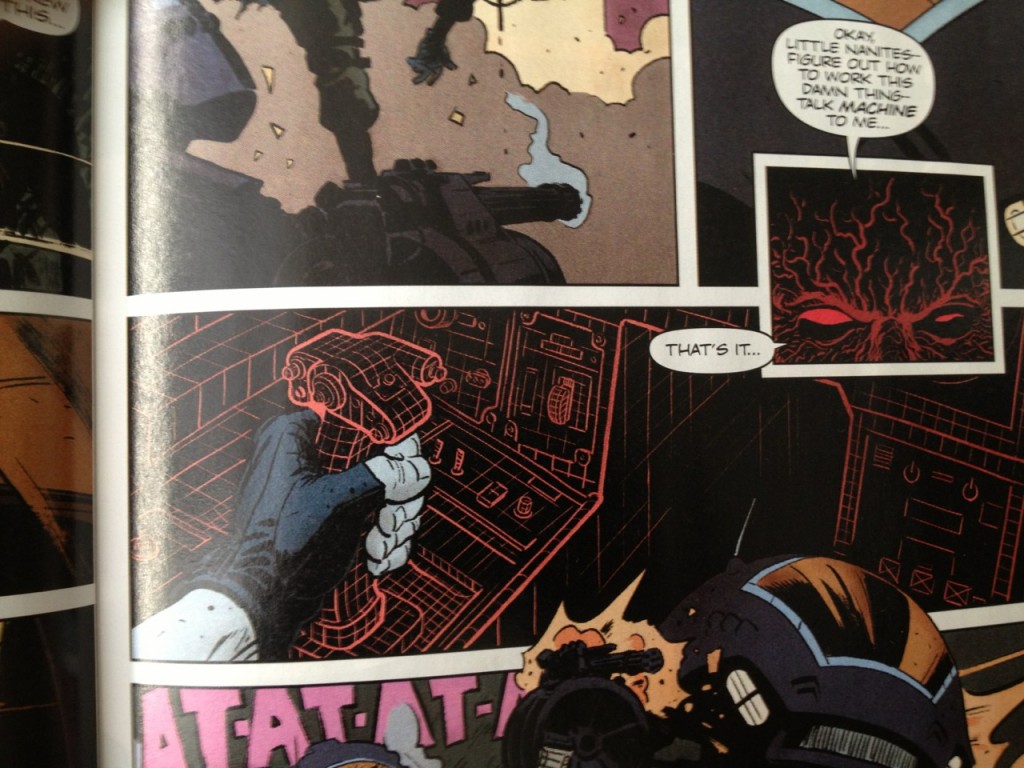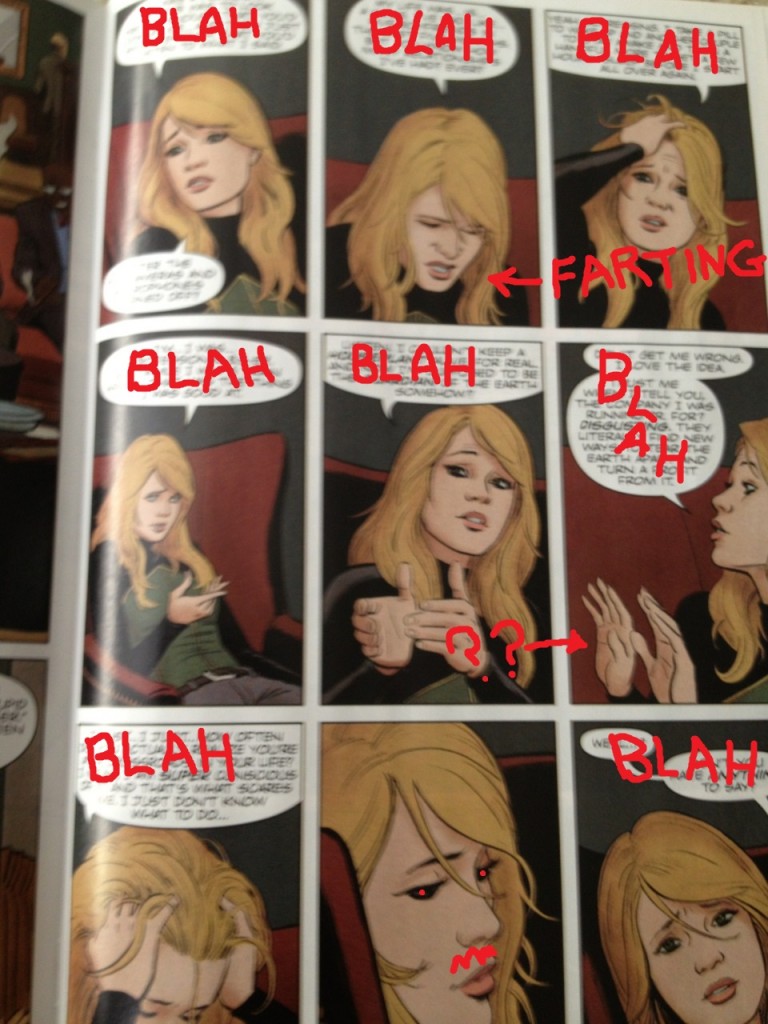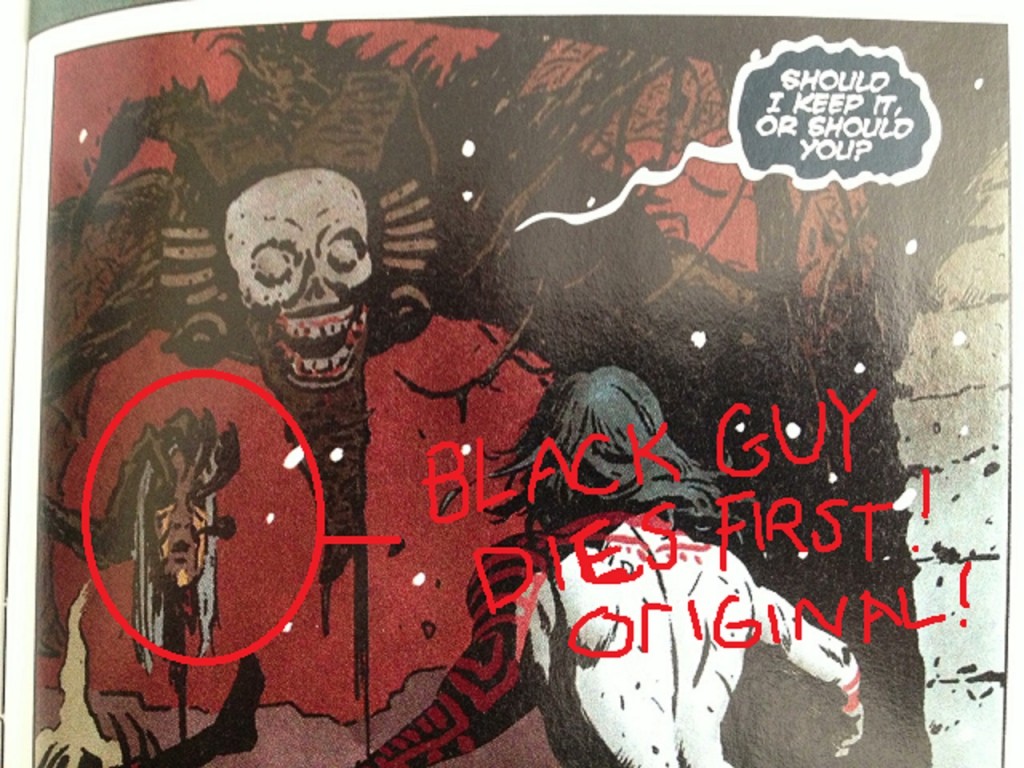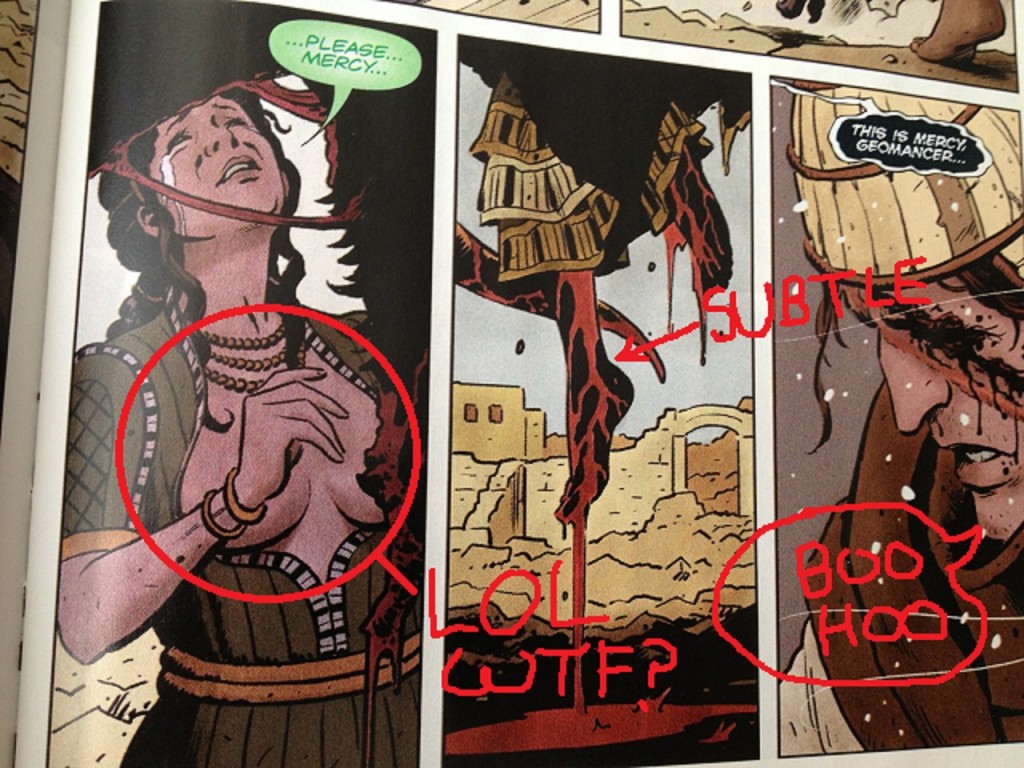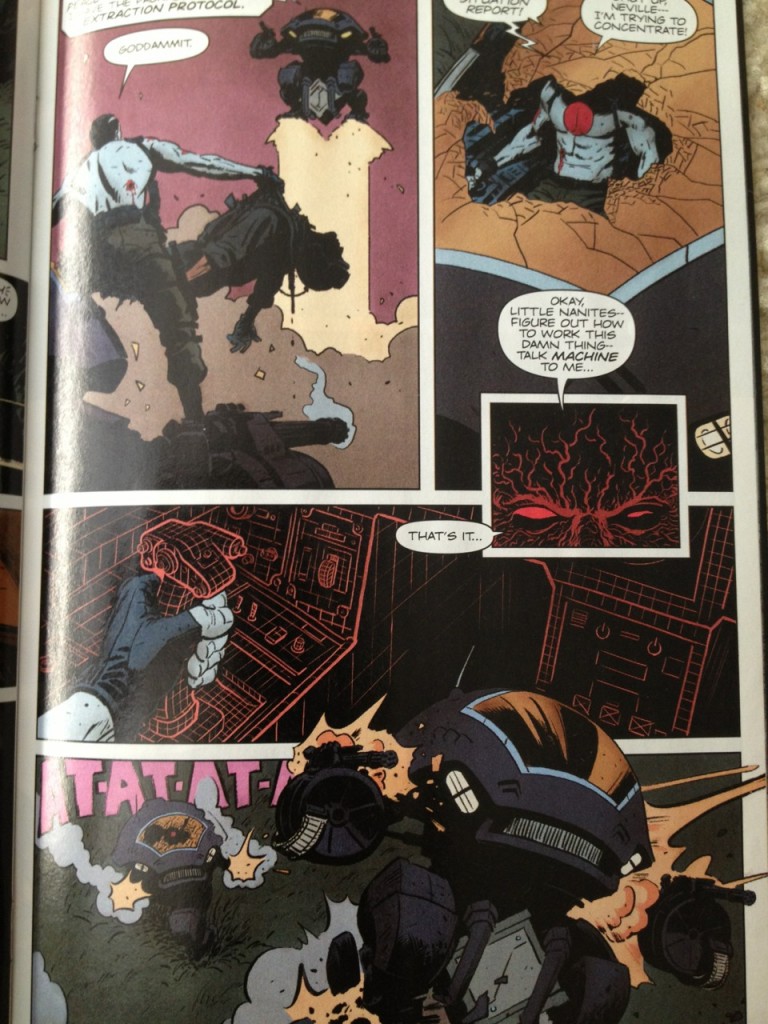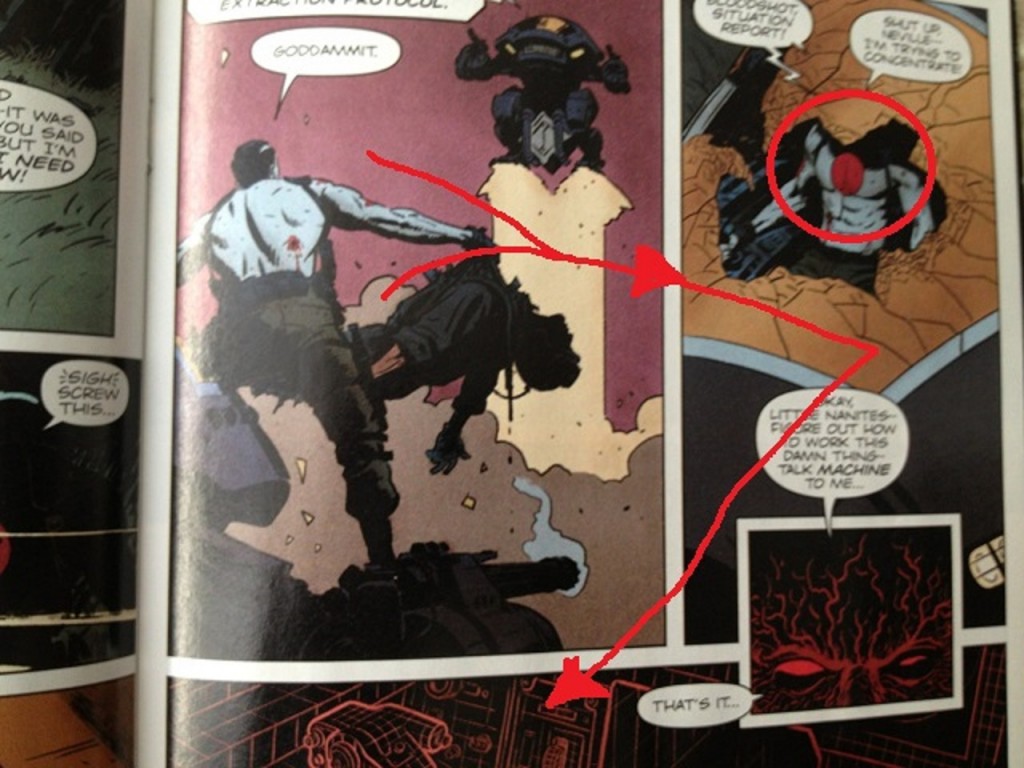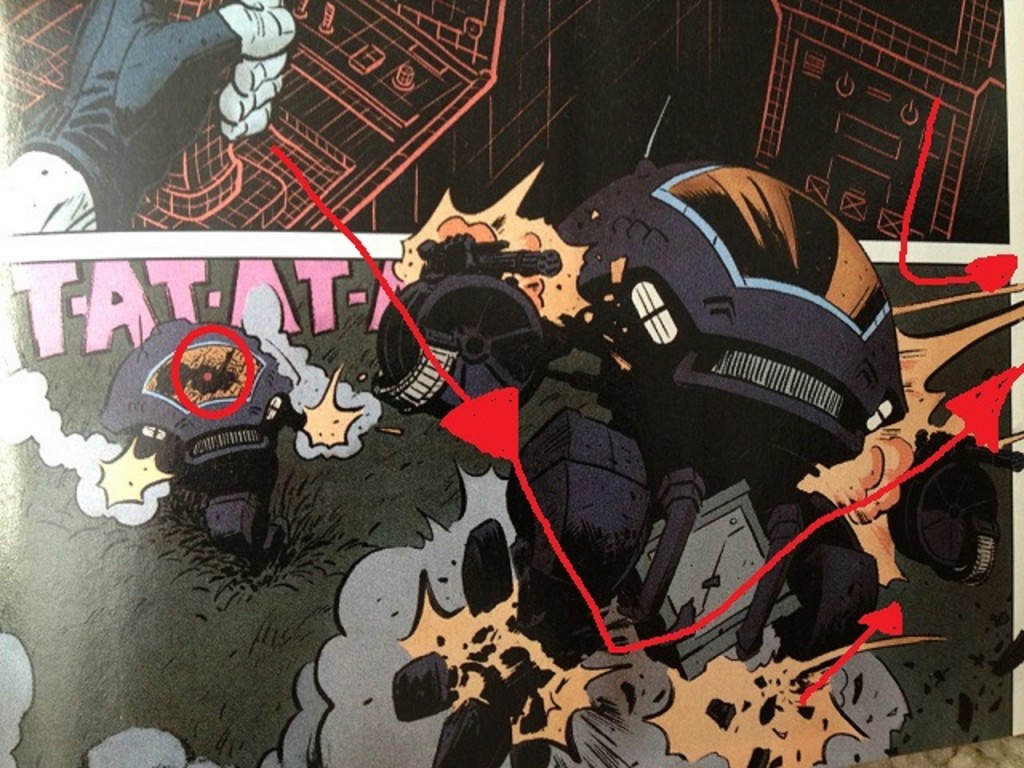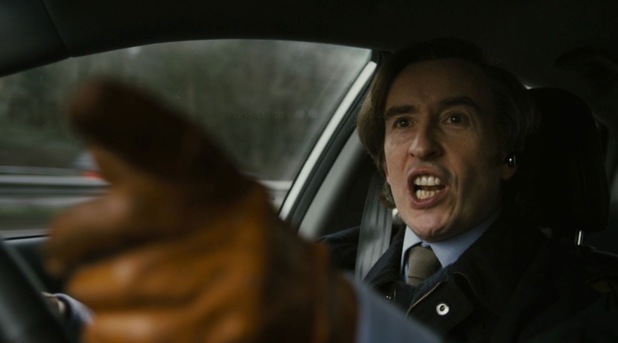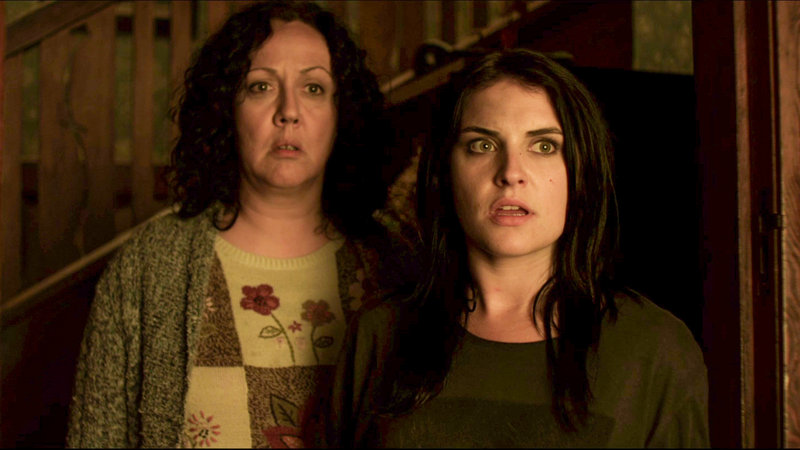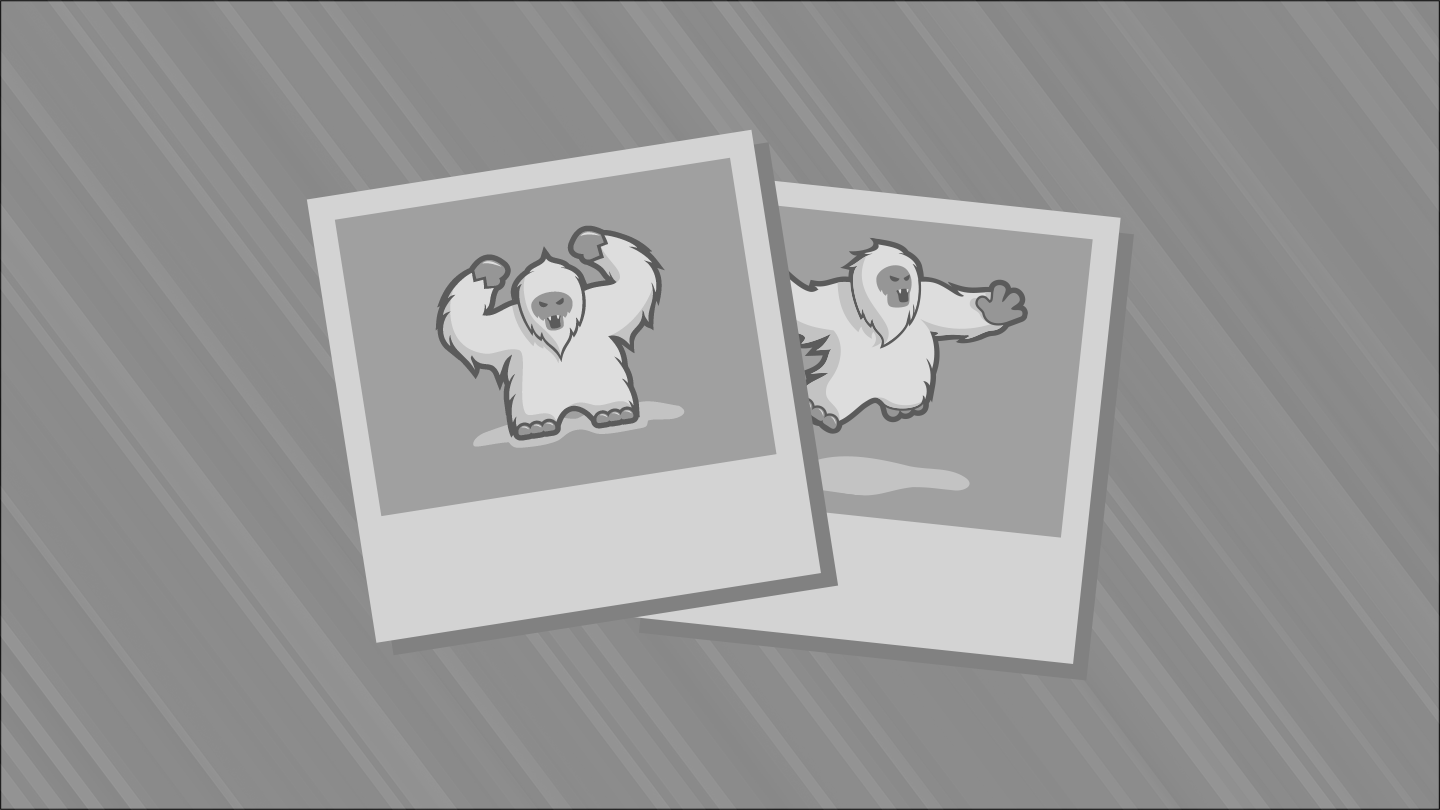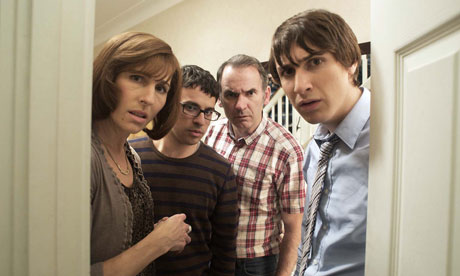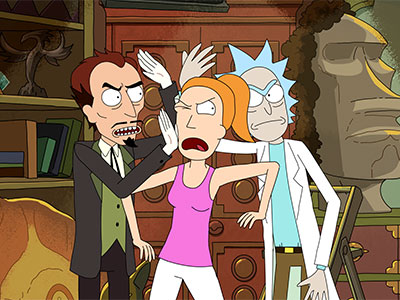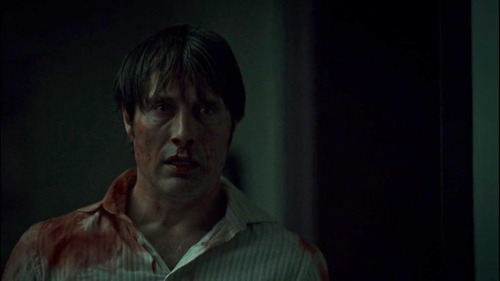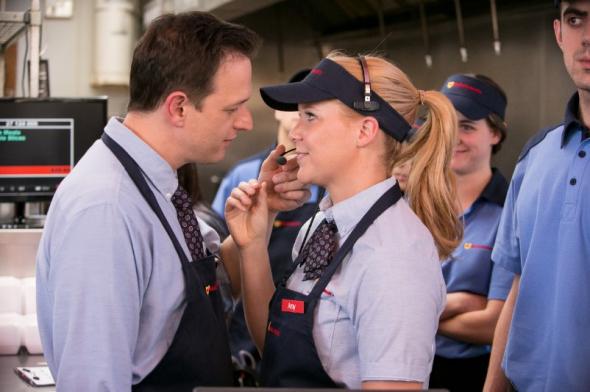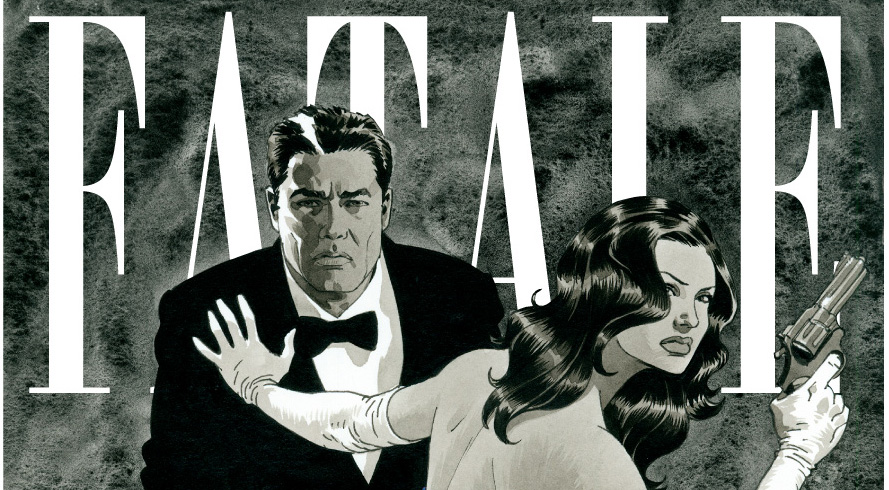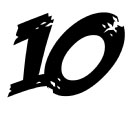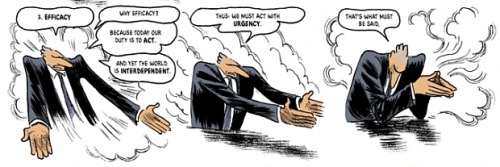Not a comic review. The following does not represent the views of Brian or John or this website or its affiliates, only the author, who is a broken person who had to get some things typed out after some recent events.
ISSUE
Recently the comics website Bleeding Cool published an article entitled "Why are We Still Complaining about Dan DiDio?", a defense of DC co-publisher Dan DiDio, written by Milestone co-founder and "mentor" Michael Davis.
Why are we still complaining?
For many years, I know I've complained about Dan DiDio, and this has seemed like an especially worthy topic to discuss given recent events. So below is some of my own reasoning that I've had in believing that Mr. DiDio should have been removed many years ago from his position at DC, a belief I only feel more urgently given recent events. In an ideal world, he would be promoted higher in a corporate hierarchy to a position of irrelevancy, to a position that actually utilized whatever strengths Mr. Davis and others might see in him, while removing him far from the day-to-day nuts & bolts of the mainstream comics industry, where I will argue below he is unsuited.
All the Usual Disclaimers:
- I am not writing from nearly the position of authority as Michael Davis-- I'm not a mentor, by any means. I tried to mentor inner city black children once by telling them that Shakespeare was the first rapper, but none of them would get in my van.
- My reasoning is not based on a sound understanding of business or finance or even comics -- only my own limited understanding of various facts, colored by my own irritation with a number of matters others may have long forgotten. You are certainly welcome to contest my ignorance as to the following.
- Nor can I claim this is an exhaustive set of reasons why Mr. DiDio is unsuited for his job, or examples supporting those reasons. There are perhaps others who I would respectfully suggest may have additional reasons to add to this list, people better equipped to make this case who can not given the ordinary politics of mainstream comics. While there are examples where comics' culture of unrelenting silence leads to absurd results, the guy who co-runs DC isn't someone you usually want to piss off, and any silence respect thereto is ultimately understandable.
- I'm a serious person in my daily life and for that reason, am typically not inclined to be serious when talking about comic books. I will try to stay on an even path when making this case, given the gravity of what we need to discuss, but can not promise not to slip up occasionally. My apologies for those who don't enjoy the whole "levity" thing
- I'm going to talk a lot about "comics" but herein, comics shall be understood to refer to "mainstream comics". Comics are bigger than that industry, of course, and my apologies as ever, if I inadvertently upset the guy who makes Ziggy when discussing comics. I promise to love you forever, Ziggy.
- Everything stated herein is an opinion offered purely for entertainment purposes. Nothing written below should be understood to be a representation of hard facts -- only opinions.
RULE
To begin, we should establish a criteria for judging Mr. DiDio.
How do we determine whether he is doing a good job?
Let's use a neutral third party-- the website Tech Republic lists 10 criteria for a good manager. Some do not seem pertinent here (e.g., "be technically proficient"), whereas others seem redundant ("put your employees' needs first" and "Encourage teamwork"). I will distill their list to at least the following five criteria:
1) Be a Team Leader
2) Be a Visionary in your Industry
3) Be a Good Communicator
4) Put your Employees' Needs First
5) Do Something Special
Based upon this five-factor test, how would Dan DiDio fare?
APPLICATION
FACTOR 1 -- Be a Team Leader
To begin, how do we evaluate Mr. DiDio's work with his team of editors, assistant editors, etc., at DC Comics?
First point:
I would argue that the most pressing evidence about Mr. DiDio's handling of his employees is simply not very good, at all.
I refer here to the fact that DC Comics, under his charge, "allegedly" maintained a sexually hostile work environment for many years-- one that not only opted to protect a perpetrator of multiple incidents of sexual harassment, but more importantly, reportedly instituted an unwritten policy to not allow women to work in the high-profile Superman office.
If true, this arguably crippled the career development of DC's female employees. After all, in discussing that unwritten policy, let us acknowledge the career trajectories of others who have worked on Superman properties. For example, Paul Levitz, former editor of Adventure Comics? Future President of DC Comics. Mike Carlin, former Superman group editor? Future executive editor of DC Comics, and present Creative Director of their Animation division. An argument can be made that a trip through the Superman office is a key step in a DC editor's career growth-- one that female employees were "allegedly" deprived of at that company while Mr. DiDio has been in charge. This is without even noting the symbolic value of such decisions, or the unnecessary distress female employees have had to "allegedly" suffer as a result of such an unwritten policy.
There may be details of this story that are not to your liking (i.e., you somehow may believe that DC's knowing retention of a two-time sex-shenanigan thug didn't somehow constitute a "slap on the wrist"). But everyone must admit that in our highly charged times, DC has suffered a public relations disaster as a result of this choice by DC to "allegedly" protect the career of a perpetrator of sexual harassment at the expense of women (which logic requires that we attribute in major part to Mr. DiDio, as one of DC's top managers). We are now seeing the fall-out of Mr. DiDio's choices being widely reported outside of the four corners of the mainstream comics industry-- consider the following headlines in recent days:
- Paste Magazine: "How Shelly Bond's Dismissal became a War Cry Against Harassment".
- Video game website Polygon: "DC Comics responds to outcry about sexual harassment, after dismissing female editor-- After three weeks of silence, DC Comics comments on swelling online discussion".
- Daily Dot: "DC Entertainment responds to turmoil over sexual harassment claims."
- Vulture: "DC Entertainment Responds to Sexual Harassment Allegations."
DC has attempted to issue a "statement" about the situation, but (a) their statement was respectfully lacking in either substance or reassurance, (b) many of these articles have agreed, often describing the response as "vague", and (c) in Vulture's words "DC's critics haven't been satisfied."
The situation involving the editor at issue is not an issue just about that editor. These things "allegedly" happened while Mr. DiDio was the proverbial "captain of the ship," one of the supervisors in charge, an individual with an ethical and perhaps legal duty to prevent harassment. Even if you believe, somehow, through some kind of logic, that DC took sufficient action to remedy the situation, the fact remains Mr. DiDio allowed a public relations nightmare to be created on his watch rather than take the remedial efforts at the appropriate time that could have avoided that very same public relations nightmare.
If protecting the public image of your company is not one of your priorities as a manager, where can you even be said to be leading your team?
Second point:
Have there been losses of editorial talent while he has been in charge?
Answer: absolutely yes.
There are any number of names we could mention here, most of whom would probably prefer that they not be drug into my circus-world-- excellent, excellent people who have found work elsewhere, including work at DC's competitors.
Let's at least consider the most recent Image Expos: part of the favorable press that has been obtained for Image Comics has been because they are now working with former high-profile DC editors.
Karen Berger (a DC Employee of such repute that her decision to leave the company was the subject of a New York Times article) is working on Surgeon X at Image with Sara Kenney and the (weirdly underrated in comics) John Watkiss-- and press for that book focused more on Berger, than Kenney or Watkiss!
Similarly, Before Watchmen group editor Will Dennis is now working on an Image Comic with other Before Watchmen "creators". While employed by DC, Dennis had worked on projects like 100 BULLETS and the LOSERS (a property made into a movie of the same name); picked Jason Aaron out of a submission pile; arguably had the kind of success that a comic publisher would ordinarily value.
Indeed, Image can be seen reaping the benefits of these defections in a number of ways. Consider this description from Peter Milligan (formerly a prominent DC creator) as to how his new Image Comic The Discipline came to be conceived: "After a lunch with then-Vertigo Editor Will Dennis, where we talked about doing a sexy, dark project, some of my earlier thoughts came into focus."
In comics, the talent matters, and editorial talent is arguably as much a talent as writing, drawing, etc. In that respect, DC has arguably suffered major losses under Dan DiDio. And Dan DiDio's losses in editorial have generated favorable press and buzz for Image Comics, one of DC's key competitors at the moment.
Dan DiDio joined DC in 2002, and became Vice President - Executive Editor in 2004.
Consider DC and Image Comics in 2004, at the time he became Executive Editor, as compared to the present:
- DC's market share in 2004 was 30.63% dollar share and 32.23% unit share.
- Image's market share in Year-End 2004 was 3.90% Dollar Share, and 3.94% Unit Share.
Consider DC and Image Comics today, after Mr. DiDio became a prominent figure at DC:
- DC's market share in 2016 is 22.16% dollar share, and 24.02% unit share.
- Image's current market share as of 2016 is 9.67% Dollar Share, and 10.99% Unit Share.
There are various ways we can interpret these numbers, certainly -- there has been a growth of the audience in those years, and market share is obviously less important than gross revenue (where numbers are obviously not as effortless to come by). In other words, no one should mind having a smaller share of a bigger market, if that means more money overall.
But perhaps these numbers merit some consideration when evaluating Mr. DiDio's job performance, given the simple fact that Marvel's numbers were not affected so dramatically. Marvel has held relatively steady, going in Dollar Share from 36.54% to 44.38%. Image's gains have not been a loss for Marvel in the way they have been for Mr. DiDio's DC.
Third Point:
How would we describe the editorial culture at DC under Mr. DiDio?
I think there's evidence in support of those who would use the phrase "Editorial Chaos."
Here's one of the most promoted New 52 creators Rob Liefeld talking about why he left DC in 2012: "Massive indecision, last minute and I mean LAST minute changes that alter everything. Editor pissing contests… No thxnjs."
Or there was the time that DC editorial in New York "stepped in" to alter a comic handled by DC Entertainment in California -- after its contents had been promoted in TV Guide, which was reported by Wired.
Or there was a report in April 2014 of Mr. DiDio stating at a retailer summit that he couldn't tell them about a September event because "only about half the teams have been confirmed" at that late date, adding also that a 3d cover promotion from the year before had lead to DC destroying "125,000 copies due to blurry proofs and some had cover dimples due to heating issues in production." Long-time readers might remember an article written by Brian Hibbs covering that 3d cover situation -- an article entitled "The staggeringly epic incompetence of DC Entertainment."
Or consider this paragraph from an otherwise satirical March 2013 Outhousers article:
"DC Comics has had a rough week. The beleaguered publisher came under fire on Wednesday when news broke that Andy Diggle was walking off the creative team of Action Comics on the same day previews of his run were published in DC's weekly comics. Series artist Tony Daniel was announced as his replacement, but Daniel had to find out via Facebook post. Joshua Hale Fialkov walked off his job as writer of Green Lantern Corps and Red Lantern the same day, and it later came out that he did it because DC was planning to kill prominent black Green Lantern John Stewart. "
That was all in one week!
Want to know the funny thing about that week in March 2013? It was a month after a February 2013 article from Bleeding Cool entitled "Did Dan DiDio apologise to DC Creators?":
"Before the recent top-secret DC creative summit, Bleeding Cool ran a suggestion box, printing suggestions from actual DC comic creators about how they’d like to see things change. Whether it was because of that list, or because of those sentiments also being expressed face-to-face, I don’t know. But I’m told that at the summit, Publisher Dan DiDio apologised to creators gathered around. With President Diane Nelson to his side, DiDio admitted that there had been problems in the editorial chain, apologised for the repeated back-and-forths on people’s scripts and art, and committed to reducing such editorial inputs once an editorial direction has been agreed upon and approved."
All that chaos was after Dan DiDio had quote-unquote "apologized"!
You might know that Mr. DiDio and Ms. Nelson both recently attended another summit quite recently, at least again according to the Outhousers:
"After a widely expressed belief that the company failed to properly handle sexual harassment complaints and instead discouraged victims and witnesses from speaking out, DC Comics has released a short statement to Comic Book Resources. [...] The statement followed an "all staff" meeting Friday led by DC Entertainment head Diane Nelson about sexual harassment."
Question: How many summits does Dan DiDio have to have with the employees he's failed?
Question: How many summits could be avoided with another manager in his place, one actually suited to lead people?
Remember that suggestion box Bleeding Cool mentioned in 2013? One suggestion stands out:
"It is okay for someone other than Dan DiDio to have an idea. 52 books means 52 writers have been hired to write 52 books every month. That is a huge creative pool to draw from. So why does every idea have to get bottle necked through one man?"
Here, we can see first-hand evidence of DC in 2013: a creative person anonymously observing editorial dysfunction -- editorial dysfunction that Mr. DiDio not only tolerated but was apparently personally responsible for.
FACTOR 2 -- Be a Visionary
First Point:
How do we evaluate whether someone in charge of content is a visionary? I think the answer has to be based upon the talent they work with. If Mr. DiDio is a visionary, one would expect that he would attract to DC the visionary talent that would drive DC into a new era.
So: what about Mr. DiDio's relationship with the creative personnel of comics-- the quote-unquote "star" members of creative teams that arguably can drive audiences to their books by virtue of their names and personal brands?
Here, the first example of Mr. DiDio's reputation that first springs to mind is his work on 52, a weekly series that fans received warmly and indeed, would serve as a model for multiple weekly or "bi-weekly" DC projects thereafter.
Except listen to how 52 co-creator Mark Waid describes Mr. DiDio's involvement on that project in 2009:
"The biggest challenge was actually, wisely, kept from us by Steve. EIC Dan DiDio, who first championed the concept, hated what we were doing. H-A-T-E-D 52. Would storm up and down the halls telling everyone how much he hated it. And Steve, God bless him, kept us out of the loop on that particular drama. Siglain, having less seniority, was less able to do so, and there’s one issue of 52 near the end that was written almost totally by Dan and Keith Giffen because none of the writers could plot it to Dan’s satisfaction. Which was and is his prerogative as EIC, but man, there’s little more demoralizing than taking the ball down to the one-yard line and then being benched by the guy who kept referring to COUNTDOWN as ‘52 done right.’"
Mark Waid currently writes the Avengers for Marvel-- one of its highest profile titles.
Mr. Waid also has 84.1 thousand twitter followers. By comparison, Mr. DiDio has no twitter account because he cancelled his, (perhaps coincidentally) after it became clear DC had "allegedly" maintained a sexually hostile work environment.
Or there was Paul Jenkins in 2013:
"DC is in the toilet right now. [...] Suffice it to say that the fans are not getting the creators in these books – they are getting an unpalatable product, which is destroyed by editorial interference perpetrated by unqualified project managers."
Paul Jenkins was the author of an Inhumans run that would have likely been the model had Marvel gone forward with a planned Inhumans movie.
Here's a key point that I hope is clear: comic creators prefer to be silent when something has gone wrong, and to simply talk among themselves as to that situation. No one wants to stick their neck out. So when we see people still manage to say that things have gone wrong at DC-- we are only ever seeing the tip of a very dysfunctional iceberg. We are seeing truly strange weather. That anything is being said at all is remarkable.
Second Point:
Subsequent to 2004, among fans, my own personal observation as a comic blogging weirdo with some level of communication and observation of the fanbase? It has been that fans have felt like the talent has been more at Marvel than at DC, that Marvel had the "deeper bench," and that Marvel, far more than DC, was a route to being a "Bigger name" in comics for a comics writer than DC.
Who have been the big name authors under Mr. DiDio's regime at DC? Scott Snyder. Grant Morrison. Geoff Johns (though arguably an equal or superior to DiDio in the corporate hierarchy and thus "doesn't count"). Gail Simone. Those four names come to mind first, for me, at least.
By comparison, just going through some of the "big name" writing talent on the Image Comics website-- just writing talent:
- Robert Kirkman-- also worked with Marvel, arguably most famous writer in mainstream comics right now, god help us;
- Mark Millar-- also worked with Marvel, poor relationship with DC;
- Ed Brubaker-- also worked with Marvel;
- Kieron Gillen-- also worked with Marvel;
- Matt Fraction and Kelly Sue DeConnick-- both also worked with Marvel;
- Ales Kot-- except for a couple issues of Suicide Squad, mostly worked with Marvel;
- Brian Wood-- sex monster;
- Marjorie Liu- also worked with Marvel;
- Rick Remender-- also worked with Marvel
- Jonathan Hickman-- also worked with Marvel;
- Warren Ellis-- also worked with Marvel;
- Nick Spencer-- after a brief stint at DC, has worked with Marvel;
- Jason Aaron-- picked out of a submission pile at DC, but still mostly worked with Marvel and the guy who picked him out of the submission pile is gone instead of DiDio or the guy who "allegedly" grabs at creator's girlfriends.
That's at least 13 names, not counting Brian Wood-- more than three times as many!
These are just off-the-top-of-my-head names, back of the envelope math. Sure, there are people we could argue over, debate whether or not they are "stars". We can argue over Charles Soule or that Tom King guy, I guess. But I don't think that would result in a significant change in numbers unless you got desperate and started yelling that Jeff Lemire's a "star" to someone somewhere. (And I think he might be at Marvel now, too...?).
Or yes, there are people hard to classify: Kurt Busiek-- worked for everybody; is beloved. Brian Vaughan-- worked at DC... but at Vertigo, which was run by Karen Berger; his big superhero comics were at Marvel. But I also ignored all the people who just work for Marvel, e.g. Brian Michael Bendis, or, uh, Ta-Nehisi Coates(?). DC does not have talent of their equivalent fame in its line-up.
Look: this is not to say DC didn't work with talented people in recent years. Your pal-in-comics Graeme over at the Wait What podcast has had nice things to say about Rob Williams or Genevieve Valentine or others, say. (I thought Valentine had some moves-- didn't keep working for DC). But DC has arguably not been the route to fortune and glory during Mr. DiDio's tenure, not as compared to a comparable gig at Marvel Comics.
Consider G. Willow Wilson-- worked at DC on a Vixen limited series, a Vertigo series, a smattering of DC titles. But fortune and glory? From the outside at least, it seemed like that's been generated far more off her work for Marvel, and her contributions there reaching their audience far more than was true at DC.
Can we really say that's meaningless? And can we really say Mr. DiDio has no responsibility, zero, zilch over that state of affairs? Would you actually try to tell me that Marvel just "got lucky"? That would all simply to defy common sense.
And final note on this point: Gail Simone? On at least one occasion, during Mr. DiDio's leadership, Ms. Simone was fired off a Batgirl series that was "performing well" -- by e-mail. Treatment Ms. Simone then described as "baffling and sad." If Baffling and Sad is how DC under Mr. DiDio's supervision has treated its stars, is it surprising he can't attract more of them?
Third Point:
Eagle-eyed readers will notice the one name I have left off that list is Greg Rucka, a writer whose recent return to DC Comics generated significant buzz.
But Rucka present a curious case. Here he is in 2012, edited for your patience:
"I gave seven very good years to DC and they took gross advantage of me. That’s partially my fault, but not entirely. At this point, I see no reason why I should have to put up with that, I can sink or swim on my own. [...]There was at least a period where I felt that the way they wanted to make money was by telling the best story they could; now the quality of the work matters less than that the book comes out. There is far less a desire to see good work be done.
Dan DiDio has gone on record, and this is the same man that said Gotham Central would never be cancelled as long as he was there, telling people what a great book Gotham Central was, but it never made any money. Well, take a look at your trade sales! That book has made nothing but money as a trade. What I’m now being told is, ”lt was never worth anything to us anyway.”So, you know what? They can stop selling the Batwoman: Elegy trade and stop selling the Wonder Woman trades and everything else I’ve done, because clearly I’ve not done anything of service and those guys aren’t making any money off me."
This is DC's highest profile writer, at the moment.
Fourth Point:
"But wait wait wait," I hear you say-- "Maybe it's not a question of whether DC has failed to attract strong creators. Maybe Marvel and Image are just doing a very good job at attracting talent, and DC has had to compete but done a good job in light of that competition."
Except: then that raises a pertinent question-- has DC under Mr. DiDio had practices in place that would actively keep star talent from wanting to work there, or impaired its ability to break new talent?
Arguably yes.
"Even besides allegedly keeping around editors who will thrust their tongues down your girlfriend's throat right in front of you?"
Again, arguably yes. Actual editorial practices.
Consider Greg Rucka's new role on Wonder Woman-- (1) a job he "allegedly" took on the condition that he not have to work for a perpetrator of sexual harassment whom Mr. DiDio has protected and (2) a job that he "allegedly" got after DC had promised the work to a female writer... and then took it away from her at the last minute.
This is a story we've heard time and again about the modern DC under Dan DiDio. Creative teams simultaneously working on pitches, not knowing that they were competing with other people for jobs. Consider just this recent February 2016 article from Bleeidng Cool, entitled "DC Comics Rebirth: What Happened to the Old DC Comics Pitches?":
It’s a hard time pitching at DC Comics right now. Everyone’s at it, everyone’s in competition with each other – even those who don’t know they’re in competition with anyone.[..] “Tumultuous” is the word I’ve have heard used. And its not just an issue for DC Comics. As a result of the upheaval and unsureity, record numbers of comic book professionals have been contacting editors at Marvel Comics, and publisher of Image Comics Eric Stephenson than ever before…
Or consider writer Warren Ellis in 2011:
"I’m hearing a lot lately about writers being put into foot races on gigs. And not only do they not know who else is running for the job – but many of them seem not to be told they’re in a foot race at all. Writers who assumed they were writing the gig are being told that they never had the gig at all, that other writers have been run parallel to them. Even though they were put through multiple drafts. They didn’t know they were in competition.
[...] They are finding new and interesting ways to piss off more people than they’re hiring. Now, comics has no shortage of resentful people – but do you really want to create exponentially more? People who can identify the exact individuals who fucked them over, and wait?
Commercial comics can be enough of a snakepit even in relatively benign times. But bringing back a process both demeaning and creatively inferior, and just fucking lying to people about it? I don’t like what that says about the next cycle in the field. I guess the Nineties really are coming back.
At relevant times, DC under Mr. DiDio has apparently utilized practices condemned by the top talent in comics. If we ask why DC does not have stronger relationships with the talent in comics, how can we start our blame with anyone other than Mr. DiDio?
Fifth Point:
This one is a little theory I have -- that there's a fun game that I imagine comic creators like to play called "What's it going to be like when I get older?" My theory is that comic creators likely want answers to that question that aren't terrifying-- and for that reason, I imagine they pay close attention to how veteran talent is treated, how loyal DC artists are treated, so as to imagine how they themselves might be treated someday if they work hard for DC.
How'd veterans make out under Mr. DiDio's watch?
Listen to Kevin Maguire-- an artist I've associated with what makes DC Comics great, my entire goddamn life-- in August 2013:
"I think I was just fired. [...] I don't know what there is to get in front of. I don't know what's going on. This morning I had something to work on and now I don't. Right now, my primary concern is to have something to do starting tomorrow that pays the bills."
Mr. Maguire ultimately did do something "tomorrow." He started working for Marvel on a high-profile Guardians of the Galaxy comic written by Brian Michael Bendis. "Not good enough" for the DiDio regime turned out to be plenty fine for one of the most high-profile creators in comics at DC's competitor.
Theoretically, I imagine this served as a lesson to others-- loyalty and effort at DC are not rewarded. At least, not under Mr. DiDio. Again, ask yourself: would you expect someone with that on their track record to be able to attract real star talent?
Sixth Point:
Does this argument overstate the importance of the creative people in comics? DC has Batman-- does it matter who writes it? Many charts can be shown suggesting that for the most part, perhaps it doesn't.
I would argue with those charts, however, based upon a movie I saw recently entitled Captain America: Civil War.
Sure, some would say that movie was based upon a crossover, the kind of crossover that Mr. DiDio made comics safe again for; that Civil War was Marvel's response to the Infinite Crisis crossover and side crossovers that Mr. DiDio would point to as one of his big successes in comics.
But that would ignore what that movie seemed far more to evidence, which is how much the movies have taken inspiration from the contributions of a few key creative people at Marvel, at the right place, at the right time, at a company that understood the value of their contributions. People remember Civil War not because it's a crossover-- no one fondly remembers Secret Invasion or Siege the way they do Civil War. No, Civil War seems to me far more a Mark Millar comic, a Millar comic through and through, thematically, in terms of how he thinks about character, in terms of how he thinks about what appeals to audiences commercially. Hollywood has successfully made movies of a half-dozen Mark Millar comics now, so that hardly seems coincidental. And the Avengers in that movie? Unmistakably inspired by his Ultimates run.
And of course, the movie people didn't stick to Millar's work-- no, they refocused Civil War to address... the Winter Soldier, Ed Brubaker's key contribution to the Marvel "lore." The entire Marvel Cinematic Universe is impossible to imagine without Ed Brubaker-- a DC writer who left for Marvel, and I will note here the co-creator of Gotham Central.
You can see the other co-creator talking above about how he felt about Mr. DiDio.
Plus, various movie studio's relationship with Brian Michael Bendis is well-settled. Amy Pascal or whoever would consult with him on decisions. Indeed, I would say the casting of Marisa Tomei in Civil War as a foxy Aunt May, one of the more charming aspects of that movie, in all material respects took its cues from his Ultimate Spiderman run.
The Marvel movies and their success have all found some inspiration from "big storylines" from relatively recent comics. Relatively recent comics matter. The people who work on them matter. The argument that comics are a test lab for the movies can actually be seen with these movies, to some extent. This will especially be true if they actually make a Captain Marvel movie, which would be astonishing-- a multi-million movie that could only be explained because of Kelly Sue Deconnick's work.
But DC Entertainment...?
If DC drew inspiration for its recent Batman vs. Superman movie (which I have not seen)... well, no one seems eager to claim that credit, given the fact that-- like Mr. DiDio's career-- that movie's reception can only be described as "contentious".
What comics under DiDio's watch could be used to make a movie franchise? Final Crisis-- a comic about Superman singing evil away? And: why does DC constantly aim at contentious when Marvel is so profitable when it aims to please its fans?
If this is the arena modern comics have to be judged in (and let's set aside temporarily our fan horror for that fact), what exactly would anyone point to in order to call Dan DiDio a success? If it's DC's success in television, I suppose you would be referring to Gotham and its relationship to Gotham Central. But even there, again see above re: how one co-creator of Gotham Central previously felt about how his work was handled by Mr. DiDio, and how the other co-creator was allowed to leave the company under Mr. DiDio's watch to go make valuable contributions to DC's competitors.
Seventh Point:
This section has so far focused on DC's relationship with comics' creative community, based upon the premise that creative people are the true drivers of vision in comics, that a strong relationships with those individuals will lead to visionary comics, that a manager's relationships is evidence of his vision, etc.
An important point: we have points of comparison to Mr. DiDio.
Consider Axel Alonso. Consider Eric Stephenson. I've made fun of both individuals in the past, as is my pattern and practice, being a basically shitty person, and I hopefully will again in the future because it's fun, it makes me laugh, and fuck their feelings. But still! Stephenson arguably has a vision of comics that he is able to articulate for others, while Alonso plainly has enjoyed an exceptionally strong relationship with comics' creative community for years, reflecting a degree of taste and an ability to identify talent that should never be underestimated.
Neither has ever even remotely inspired that I write something like this piece about them.
When we compare Dan DiDio to his equivalents at Image or Marvel, I can not imagine a person who would argue he would fare well in that comparison. As set forth above, I do not think he remotely compares to Mr. Alonso where the talent is concerned. As for articulating a vision of comics ala Mr. Stephenson, reasonable minds can differ but for me, at least, the vision Dan DiDio has consistently articulated in comics has always been a profoundly backwards looking one not worth pursuing.
Mr. DiDio's frequent pitch has been that comics are a Wednesday activity, and that he wants going to a comic store on a Wednesday to be the most exciting thing for Wednesday fans -- hence, requiring a top-down editorial approach that constantly excites fans with events, rebirths, reboots, etc.
He has articulated this vision despite (a) the explosive growth of the digital market, (b) the flourishing of the trade market, (c) a historic new potential audience coming into comics thank to an unprecedented level of outside media attention on superhero properties, and (d) social media that more than ever puts fans directly into contact with creative talent. Each of these developments has plainly evidenced for anyone paying attention that there is a future growth potential that exists in addition to the Wednesday crowd.
If you can find a bookstore, if one still exists in your post-apocalyptic vicinity, go look at the comics being sold on the shelves there in the children's section. Title after title for children, few if any from DC-- that space belongs far more to Scholastic. Growth areas for comics have been ignored by DC while Mr. DiDio has seemed to single-mindedly pursue only one small segement of the audience instead -- and now as a result, that space is owned by Ms. Raina Taglemeier instead, who rules it with an iron fist, that she keeps in a dirty bag, filled with rusty nails, that she hits people with, when will someone stop her too.
"Oh, but it's not like Mr. DiDio has ignored that growth area on purpose, has he?"
No, no, no -- well, not unless you believe Eisner winning creator Paul Pope who stated in 2013:
"Batman did pretty well, so I sat down with the head of DC Comics. I really wanted to do Kamandi [The Last Boy on Earth], this Jack Kirby character. I had this great pitch … and he said, ‘You think this is gonna be for kids? Stop, stop. We don’t publish comics for kids. We publish comics for 45-year-olds. If you want to do comics for kids, you can do Scooby-Doo. And I thought, ‘I guess we just broke up."
Paul Pope went on to create Battling Boy... a comic quickly optioned by Brad Pitt, who despite being 52 years old, saw more merit in Pope's vision for comics than anything Mr. DiDio had for sale.
Eighth point:
Mr. DiDio's lack of vision for the company can perhaps be seen most starkly in the systematic dismantlement of the Vertigo line under his tenure.
Mr. DiDio's statements on Vertigo, to the New York Times?
"[It's] myopic [to believe] that servicing a very small slice of our audience is the way to go ahead. [...] That’s not what we’re in the business for. We have to shoot for the stars with whatever we’re doing. Because what we’re trying to do is reach the biggest audience and be as successful as possible."
AMC is about to launch a television show based upon PREACHER-- a series inconceivable if not for Vertigo's prominence in the 1990's, prior to Mr. DiDio's arrival on the scene.
Mr. DiDio believes that the publishing imprint that lead to that television show was and is "myopic." How can DC Entertainment expect a person with that worldview to move the company into a future where comics and other media are more related than ever, when he so plainly and astonishingly does not understand the successful properties, imprints and creative relationships under his charge?
Are there other comics being published right now that could someday be turned into a TV show, as PREACHER has been? Sure-- the only problem for Mr. DiDio and for DC Entertainment being that right now, they're all being published by Image Comics.
FACTOR 3 -- Be a Good Communicator
First Point:
Obviously, if comics sites are running articles with headlines like "Why are we still complaining about" a guy, that guy has a PR problem. PR problems he is helpless to address-- it seems as though they got so bad he even had to cancel his twitter account!
Bad PR bespeaks bad communication.
Second Point:
How would we describe Dan DiDio's relationship with fans?
Here, I'm reminded of his antics during the launch of the New 52-- the launch of one of DC's most important and challenging publishing initiatives in decades. One where his communication skills needed to be at their very peak.
But consider his actual conduct, as described by this article from 2011:
In the opening minutes of DC’s very first daily “New 52″ panel at the San Diego Comic-Con last Thursday, when Co-Publisher Dan DiDio turned to the audience and asked what DC would have to do to change the minds of those skittish about the impending relaunch, one man yelled “Hire women!” [..] DiDio’s response was to turn the question back on the questioner and ask him whom he thinks DC should hire. [..] Things sure sound more heated than just a matter of tossing the question back to the audience. DiDio repeatedly asks the audience member what the statistics he cited mean to him, and his call for names of female creators DC should have hired sounds less like a request and more like a challenge, as he says “tell me right now” over the audience member’s seemingly struggling attempts to respond.
You can hear that exchange here yourself-- Dan DiDio plainly and heatedly brow-beating a fan, just for asking about DC's exciting new publishing initiative! A fan asked a basic question that was met with hostility.
(And good lord, if that's how he talks to fans in public, what is he saying to people when audio recordings aren't being done? What is he saying to his co-workers who challenge his thinking behind closed doors? How is he speaking to people who try to report sexual harassment or other HR issues to him? Our thinking only improves when it is tested-- and here we can hear Mr. DiDio's reaction to the most simple of tests faced by anyone in a sales position: speaking to a consumer).
Mr. DiDio reportedly has a temper-- that Liefeld article above notes his reputation for being "hot-headed". And again, keep in mind-- this is fucking comics. Almost everyone in comics has the exact same public persona which is "Awww, shucks, we just love comics -- we're big fans of Love & Rockets-- here's a superhero comic instead though." The only people who don't have that public persona are, like, people who smoked a marijuana cigarette once and they get to be "The Visionary Drug Shaman of Comics." Those are your two choices in comics for public personae. Not temper! Batman's the angriest superhero in comics and he just punches a clown that keeps getting back up after you punch the clown-- that's literally a toy I had when I was an infant. How the hell do you get a reputation for having a temper in comics??
There is really not much to be all that angry about with comics except, like, oh, geez, I don't know, editors sexually harassing people and ... well, gee, I guess that's a bad example where DC Comics is concerned right now. Because "allegations" would suggest he and DC have never been angry enough about that.
Third point:
It is well-settled that there is a growing female demographic in the comics audience, and that this demographic will become increasingly important to comics publishers in the years ahead.
However, Mr. DiDio seems ill-equipped to have meaningful dialogues with those people given his history. Here, I refer not only to DC's "alleged" protection of editors prone to sexual harassment, but also just his history with the characters themselves.
Consider Dylan Horrocks describing the death of Stephanie Brown, a Batman supporting character killed on a book Mr. DiDio apparently oversaw:
"It was one of the most depressing weeks of my life, because we basically spent the whole week in this horrible office planning how to kill this poor teenage girl who I really liked, I thought she was a great character[.] It was really seedy, and I think about two days into it, I basically said look, I don’t want… because they planned this big long torture scene, I said I don’t want to really have anything to do with that. [..]"
That story decision ended up becoming a multi-year michigas between DC and its fans, too complicated to recount here, but one certainly passionately felt by fans. Marvel has recently had a string of successes capitalizing on female characters that their fanbase flocked to, most notably with Spider-Gwen. DC by comparison, under Mr. DiDio, was given its own chance at a potential fan favorite character with Stephanie Brown, but instead turned that character into one that DiDio's DC would describe in July 2012 as "toxic" -- leading Wired to state "By ignoring these potential new customers, DC is leaving money on the table."
Consider the origin of Identity Crisis, another project that Mr. DiDio would probably point to as one of his success stories -- a project that one of its assistant editors publicized (in articles now removed from the Internet) was spawned by Mr. DiDio stating "We need a rape."
Even if you could argue that Mr. DiDio's decisions were correct ones for the past, is this the person who going forward can deliver comics' growing female fanbase to DC? Would the person responsible for these kinds of decisions be the person who you'd want communicating to the press, etc., on comics intended for women, an increasingly significant demographic in comics?
Fourth point:
But I hear your counter-argument: "Why does all this girl stuff matter? Oh no, he bungled a social justice issue-- boo hoo, SJWs. Take a girl-hate pill and join us on Reddit."
This matters because whatever you may feel about internet activists-- and I am irritated by them myself sometimes-- sometimes things will go wrong enough that it will attract the attention of outside media, and therefore potentially affect the public conversation around the company. That is the nature of our online media at the moment.
In those situations, what kind of person do you want around speaking for your team?
In September 2013, there was a controversy because JH Williams and W. Haden Blackman left the Batwoman comic due to the kinds of editorial interference that we've heard about so much during Mr. DiDio's time at DC:
"DC has asked us to alter or completely discard many long-standing storylines in ways that we feel compromise the character and the series; [...], most crushingly, [we were] prohibited from ever showing Kate and Maggie actually getting married. All of these editorial decisions came at the last minute, and always after a year or more of planning and plotting on our end."
This lead to coverage in the media-- the Huffington Post's headline was "Batwoman Authors Exit, Claim DC Comics Banned Gay Marriage Storyline" while Gizmodo's headline was "DC forbids Batwoman's Gay Marriage, Creative Team Leaves."
This was a time where great communication was called for.
Enter instead: Dan DiDio.
After one retailer noted "It's just another high profile walk off, causing frustration with customers. Was getting texts... within minutes from customers. Added to the 3d cover allocation being way worse than we were told. Rough month," Mr. DiDio's response was "let your sales rep know. They are working to help with allocation problems."
When the same retailer noted that "this is the 5th creative team off a book since you told me they were all stable through the end of the year at the retailer meeting in LA", Mr. DiDio responded "so you're saying we are never allowed to change another team again? Really?"
Mr. DiDio simply sounded and sounds unequipped to address people's concerns.
Even if you think people have illegitimate concerns, is the proper way to respond to be combative or communicative? Once again, consistent with his history, Mr. DiDio chose to be combative.
Or consider Mr. DiDio's most recent public statement-- a eulogy for a DC artist where he stated the following:
"He was both compassionate and combative, approaching everything he did with a tenaciousness and temerity that is now unheard of in a world afraid to offend."
Question: is it really a good idea to talk about how people are "afraid to offend" when you're mired in a sex harassment controversy? When did comics people get "afraid to offend" people -- after Eddie Berganza "allegedly" sexually harassed women culminating in 2010 complaints, or after he "allegedly" "harassed" a woman in front of her boyfriend in 2012? Did DC editors get afraid to offend before or after they "allegedly" tried to date-rape a girl in a hotel room in 2015?
And what in the pluperfect hell would DC look like if they weren't so gosh-darned afraid to offend us-- Sodom or Gomorrah???
I would fail at a job which required people skills-- I obviously have none. And for that reason, I selected a job which keeps me in an office, behind a desk. And except for the part where my soul is a little more dead every day, that's working out so far-- business is booming. But co-publisher of the company that publishes Superman? I could not do that job. That is a job that very obviously and on the brochure requires people skills. A lot of people skills.
That's bad math for Mr. DiDio and it's bad math for anyone advocating on his behalf.
FACTOR 4 -- Put Employee Needs First
The mainstream comics industry relies on its freelancers. It relies on people who like comics so much that they work themselves raw for very little reward. The editors select from those people, the audience reacts to what the talent bring to beloved characters, and adjustments are then made-- if the audience is happy, and the talent is engaged, a book continues; if not, the editor can choose a different creative team.
But there is one thing that I think has long been understood to disrupt this process: when editors gave themselves jobs as writers.
Indeed, my own recollection is that other publishers maybe have even had long-standing rules in place to prevent that from taking place. (Doesn't Marvel have a policy like that?)
Why? Why is it so bad?
Because comics' freelance talent shouldn't be competing with the editorial talent for work!
Imagine just the effect on morale, alone. There are only so many slots open in comics-- so many comics published, so much promotion going around, so many names an audience can remember. When editors seize that limited space, limited attention, limited promotion for themselves, what freelancer could be happy?
Plus, common sense alone just tells you that involving editorial staff in creative work will disrupt the key function of that staff: making adjustments to respond to audience demand. Who does that when the writer is a high-level editor? Who risks their career on behalf of little things like the audience? This too seems like a sound reason to have a policy insuring a wall between editorial and creative.
Has Mr. DiDio respected this common sense "separation of church and state" while working at DC?
Emphatically no! Mr. DiDio has styled himself a writer countless times over, effectively being hired by the company he has run -- seemingly thinking he can do a better job than the talented writers who are being scooped up by his competitors, while he dazzles himself with his meager talents.
Is Mr. DiDio some kind of greater writer? Will the world be deprived if he is kept from writing?
Here is a review from 2010 of one of his comics from fan-site Scans-Daily entitled "DiDio sinks to a New Low???":
"When an internet message board troll who has practically made DiDio-bashing a profession gets written into a DC Comics issue to be beaten and embarrassed, I think the people who published that product should be more ashamed than the target. [...] A shot at a message board poster who obsesses over D-level and lesser characters on the 'net, with the user name of Herald. Who happens to be black just like the character in the book. [...]Sadly, if you remove this thinly veiled shot at a reader from the equation, the writing involved in making this "Harold Winer" character is even worse. But the thought process behind actually using 5 pages (and possibly more to come) to take a shot at a hater is just impossible for me to come to grips with."
Consider Wednesday Comics. A notable artistic effort by DC, utilizing its most prominent talent (some of the most famous creators it has ever worked with) on a special format project that could promote DC characters to comics audiences. What a line-up of talent! Neil Gaiman! Walt Simonson! Dave Gibbons! Paul Pope! Kyle Baker!
And Dan DiDio!
A slot in a valuable real estate that could have broken new writers, or focused attention on deserving but less prominent DC writers-- that slot was surrendered instead to Mr. DiDio. It's not enough to write comics picking fights with internet trolls. Mr. Didio needed to equate himself with a lineup of comic all-stars-- he needed to have equal billing on a comic as Neil Gaiman!-- a position he had never earned for himself through his creative work as they had.
How can it be surprising to anyone when the announcement of DC Rebirth's creative teams is described as underwhelming? How can it be surprising to anyone to learn that exciting new talent are consistently more eager to work with DC's competitors? What creative person wants a boss who is a suit that thinks they know how to do their job better than them?
Editors are extraordinarily valuable members of a comic's creative team. But no one has ever bought a comic because of who the editor is. Mr. DiDio has delusions of grandeur, and this speaks ill of any argument that he has placed the needs of creators before his own.
FACTOR 5 -- Do Something Special
First Point:
It would be a mistake not to acknowledge that there have been commercial successes at DC during Mr. DiDio's tenure there: Geoff Johns's Green Lantern run (and it's various crossovers, e.g. Blackest Night), the hoopla surrounding the Infinite Crisis crossover, that Identity Crisis superhero rape comic moved some copies, New Frontier, All Star Superman (and perhaps Morrison's other projects like 7 Soldiers), Scott Snyder's well-received Batman run, Sandman Overture, or those initial sales numbers on the New 52 books.
(Bizarrely, in 2012, Mr. DiDio ran a list of the top ten highlights of his years at DC on Facebook-- the item he listed first was BATMAN: HUSH-- a comic he acknowledged he didn't initiate: "Work on this incredible run by Jim Lee and Jeph Loeb was started before I joined DC Comics but came out my first year there." His #1 highlight was someone else's project...? Uhhh, but okay, and I guess let's acknowledge Hush).
Even if DC is a broken machine, it is still DC-- the characters are strong.
(Sure: DC's hits can be tracked to a frighteningly small number of people-- i.e., take out Geoff Johns, and that list shrinks considerably, a problem DC will likely soon face going forward given his recent promotion-- but hits are hits. And: It's hard to say how much of DC's successes can be attributed to Mr. DiDio -- Jim Lee is riding shotgun, and people generally seem to like that guy quite a bit..)
But let's just give some credit to Mr. DiDio so this isn't completely one-sided.
Second Point:
But.
First, in obtaining his successes in various crossovers (Blackest Night, Infinite Crisis, etc.), Dan DiDio reoriented DC (and arguably mainstream comics) and its fans to an event-based model, rather than the story-based model where Marvel was seeing its big successes in the early 00's (i.e. the years that saw Millar, Brubaker and Bendis's contributions that have proven so valuable to the movie folks).
The problem with an event-based model in comics is it tells fans that certain books "matter", and the rest don't.
Comic fans shop accordingly.
I would further argue this has been exacerbated by how DC has handled its events. Whereas at least prior to its most recent Secret Wars crossover, Marvel engaged in a strategy of reassuring fans that the books they read "mattered", and contributed to a coherent line-wide continuity, DC has confusingly engaged in multiple crossovers with the opposite message: After Infinite Crisis, there would be confusing changes to continuity because Superboy punched some sort of time wall. After Flashpoint, every single comic that fans had ever read before was gone from continuity-- except ones that kind of weren't because they were popular. Good luck figuring out which those were, or how that worked. Indeed, when DC Rebirth was first rumored to exist, fans could be seen online assuming "here we go again, another reboot."
The Wednesday fans that Mr. DiDio has identified as being so critical to DC's future have been told not just that some of the comics they read don't matter (which sounds like a bad idea), but that ALL of the comics they read potentially don't "matter" (which sounds like a fucking disaster).
Here's a chart from Todd Allen writing for the Comics Beat in 2012-- a year after the new 52 launched-- the chart is a "Sales band":
100K+: 2
80-89K: 2
70-79K: 2
60-69K: 5
50-59K: 8
40-49K: 8
30-39K: 11
20-29K: 12
10-19K: 22
We see a small handful of "important" titles, and then the rest of the line is clustered at the bottom of the chart, with nearly half the comics DC published having little reason to exist.
Retailer Brian Hibbs reacting to that chart in 2012:
"What's needed now are firm hands on the rudder of the "big two" designed to steer their courses away from the shoals of irrelevancy that they are current steaming the truest value of their universes towards." (I like "shoals of irrelevancy").
Here's is Brian in 2014, maybe taken a little out of context:
"I'm genuinely starting to get worried about the extent of how our largest partners are manipulating the solicitation process, and what the ramifications are -- every month I get a little more concerned that we're edging toward another crash of the market."
Here's Brian in March 2015 talking about DC's Convergence event:
"Two months worth of comics, 11 books a week, absolutely zero valid and contemporary sales data on most of it, and the entire thing has to be ordered before we have any idea of how much it could sell. And we don't have any of our normal dependable revenue. [...] Our initial preorders were horrible -- with most of the minis only getting a single- or two-copy commitment from the body of subs, which is just terrible. I ordered most of the first issues at just five copies each as a result of that anemic response, and, since I don't think that I want to have any copies of these in my stores starting on 5/31, as the June solicits don't sound like any of them have any follow-up of any kind."
And here's Brian in December 2015, four years after the launch of the New 52 line that was supposed to re-attract lapsed Wednesday readers back into the DC fold:
[I]t was clear that many customers were getting tired of the "New 52" (DC's line-wide reboot from 2011) -- despite massive initial success with the New 52, large swathes of the audience were already starting to walk away, and "Convergence," the publishing stunt designed to fill that two-month hole, proved to be a great "jumping off" point. DC came back in June with "DC You," an initiative that launched 21 new series, meant to spotlight character and creator diversity and refresh the line, and to embrace a new, younger audience that many retailers can tell you is actually out there. But "DC You" isn't connecting with this new readership. Kind of at all: On the October sales charts, which represents the fifth issues of the initiative, only two of the 21 titles have sales over 30,000 copies (very roughly the sales level where companies with big overhead start cancelling books for lack of sales), and a staggering ten titles are selling under twenty thousand copies, which marks nearly half the initiative as an abject failure. At the same time, the changes to the core titles ("Batman," "Superman," etc.) appear to show the stalwart characters bleeding readers, and even the hail-mary for DC periodicals, the weekly series "Batman and Robin Eternal," is only selling at the end of its first month about where the previous series ended up. DC might be able to steal a bunch of marketshare with "Dark Knight III," but their core product and core market is clearly in big trouble right now.
And here's Brian in March 2016:
"I have to give DC a lot of props for standing up and taking a pretty serious grilling from the ComicsPRO retailers -- Dan DiDio and Jim Lee were as candid as a publisher ever can be to what I would characterize as a mildly unfriendly audience, in the face of the post-"Convergence" crash of DC. [...] [DC's current plans have] mechanical flaws.[...] In 2016, publishers have deeply alienated most of the core collector's market that used to be depended on buying most if not all of their output, while the "new" audience isn't looking to buy a universe of comics. [..] It isn't clear to me that DC has editors any longer who truly "get" the core of the characters, or, for that matter, what it is that the reading public actually wants".
Things never go wrong right away. Bad decisions take a while to sink in. When will it sink in with DC Entertainment that it does not have the "firm hand on the rudder" in its comics department that it needed in 2012, and that it continues to desperately, desperately need?
Third point:
Some things like the New 52 are once in a generation type moves. Moves you can't pull every month because the point of the move is the promotional value, the novelty, how you can sell them. You can't sell "we're blowing up our universe" every year because then you don't have a superhero universe anymore-- you just have a mine shaft.
I would argue that a classic and archetypal example of how Mr. DiDio is not suited for these kinds of events is the Death of Batman.
The Batman's been "killed" before, in numerous old comics. But if your event is killing Batman, you have to do it right. It has to be well-handled. The media attention will be significant. Outside audiences will become curious. The story will create possibilities for other characters to generate buzz around themselves that can be ridden out for years.
Consider the Death of Superman -- massive sales, plus DC managed to launch at least two spin-offs from that event, in Superboy and Steel, both of which lasted a significant time, with Steel leading to a movie. (I don't remember why they didn't make an Eradicator series-- missed opportunity).
Consider the Death of Captain America-- significant attention; significant sales; a post-death run by Ed Brubaker that I remember being warmly received by fans; further hype around the Winter Soldier character who later had his own spin-off title at various points in time since then; plus, they could then sell the "Return of Captain America" as a separate miniseries.
Then, consider the Death of Batman, under Mr. DiDio.
First of all, how was Batman killed? Superman was killed by Doomsday. Captain America was shot by Sharon Carter. Simple. Clean. Easy to explain to the potential audience. But Batman? Batman was killed after he crashed in a helicopter, survived the crash, swam to shore, went to fight Darkseid, and then got hit by an Omega Beam that sent him back in time, never actually dying.
What?
Second, consider what we know about sales. Batman #681-- the death of Batman-- had initial orders of 103,151 copies. That same month, it was out-sold (at least in initial orders) by Ultimatum #1, a comic about a heavy rainstorm in the Ultimate Universe, a spin-off continuity that was later cancelled due to lack of reader interest. The Death of Batman may have gotten outsold by a comic apparently where "the Thing attempts to hold off a blue whale that crashes into [a] building."
Wouldn't that seem to suggest something went sideways?!
Third, what characters came out bolstered by the event? What side benefits were had, ala Steel, ala Winter Soldier, etc.?
Besides the fact it sold at all, generated media interest at all, merely exists at all, how can we call that event a success for Mr. DiDio? Aren't there facts that suggest that money was left on the table? And if that's true for something as important as the Death of Batman, what else is true for Mr. DiDio's other successes?
Fifth point:
A conversation around Mr. DiDio tends to focus on his hits, but comics aren't just about the hits. At least if your target audience is the Wednesday audience, then what is also also arguably important is the average unit experience. In other words: what's it like on the average Wednesday when fans are just buying whatever?
If we remove the outlier lowpoints (the DC comics where someone's drawn a map of Africa up with "ape controlled" written on it, or whatever), and the outlier highpoints (where giving DC undue credit might ignore luck or an artist happening to have a breakthrough of some kind while Mr. DiDio was merely adjacent thereto), what is the average unit experience of a DC comic while Mr. DiDio has been in charge?
I have my own feelings. Others may disagree. But if we're reading that large swathes of the audience are walking away? If we're seeing DC's market share go down, and its competitors' market share go up?
That would all seem to suggest that DC's average unit experience has been substandard.
(Footnote: I also ran some numbers based on Comicbookroundup's review aggregation scores (removing a couple outlier numbers) -- keep in mind that comic reviewers give good reviews to everything being simpleminded cretins. Still: DC's median review score was 7.4, Marvel's was 7.8 and Image was 8.15. But again, comic reviewers give good reviews to everything, so none of these numbers seem very trustworthy).
CONCLUSION
Michael Davis's Conclusion
Based upon the foregoing, however, apparently reasonable minds can differ -- according to "mentor" Michael Davis, perhaps we should disregard all of the foregoing.
Why?
Mr. Davis starts by saying "I once loved the comic industry with a passion almost incomprehensible even to myself but the industry I loved so is gone. What remains is a fat out of shape ghost of its former self. A snake oil salesman selling a yearly new everything hoping fans will consider it a glorious new tune."
This is how we're starting a defense of Dan DiDio-- by having to acknowledge that comic industry under his supervision has become a "out of shape ghost of its former self."
Uhm. Okay. Great argument.
Mr. Davis continues by trying to identify the culprit-- not Mr. DiDio, but of course, comic fans:
What slays me and I fear will destroy us all is how we see, speak and represent ourselves. Character assassination over a creative decision. Damning a company, creator or content because someone wrote or drew something someone took issue with, rumors perceived as news, news handled like press releases were all once virtually repudiated as just being silly."
The problem with comics is the fans are not nice enough to the people who make them.
And the victim of comic fans, according to Mr. Davis?
"Dan DiDio may be the most hated man in comics and for what? Doing his job? [...] Be you a new fan who brought your first comic today or a superstar creator in the industry for 40 years jumping on a bandwagon of hate, bitching about something other than story or art adds nothing and takes away much from an industry already thought of as childish and immature. [...] We’d rather bitch about Dan DiDio still running DC than applaud Eric Stephenson, Publisher at Image Comics."
As set forth above, however, I believe if fans have grievances with Mr. DiDio it is because he has not done his job -- because they have born the brunt of editorial chaos, confusing events, the shredding of the DC continuity, and the failure to replace that continuity with a vision that leads them somewhere new or better. Mr. Davis suggests that fans shouldn't complain about anything but story and art, but this presumes that the disruptions in creative staff, the editorial chaos, and the failure of Dan DiDio to attract top talent to DC hasn't had an effect on story or art. Indeed, the back-story of DC's crossovers have become for fans the story of Dan DiDio's attempts to fix the continuity he has mangled-- how are these things separable?
And then there is the crux of Mr. Davis's argument: that Dan DiDio loves comics.
"Dan, Paul and Bob all love comics, in fact, I know not one single person who got into comics just as a job. Everyone I know who writes and draws comics got into it because they loved comics. [...] I believe, and I could be wrong its love that motivated the modern comic book industry. We live in an age where artists and writers have become publishers and owners; love guided them in, and it’s that love that’s been forgotten."
Loving comics is swell but it doesn't make you or me or Dan DiDio suited to work in them.
I think comics are dandy-- I shouldn't be running one of the biggest publishers in comics. I wouldn't have the vision; I wouldn't have the patience for the artists or the tolerance for the writers to handle the editorial responsibilities; I would know that it's gauche to put my own creative work next to a Neal Gaiman comic in a heavily promoted work, so I would have one on Mr. DiDio in that respect; but I would never take the job because I understand my affection doesn't overcome my limitations.
I love ice cream -- I don't work for Ben & Jerry's. I can't come up with fancy names for Ice Cream, and those guys sound like real hippies-- no thanks. I love having sexual intercourse with your mom, but your mom is still like "can you bring five of your friends?" I'm bad at lovemaking! Love is nice, but it's not something you put on a resume for most jobs.
Comics treats "loving comics" as the ultimate badge, the only ticket that matters. And it's not. The fundamentals are the fundamentals: strong relationships with creators, projects that energize fans instead of projects that persuade them that their enthusiasm is being wasted, and providing a safe environment for your team members-- preferably, providing a safe environment by doing something smarter than just destroying the careers of the women you work with.
I'd prefer someone who hated comics if they could do those things-- if they understood that this is a business and that business needs strong managers who will satisfy the criteria we have set forth above. The writers have to love comics to write them well; but the editors just need to get them out the door without making themselves the story. Dan DiDio has made himself the story, over and over and over and over again. Why is this still being tolerated?
And again, there are places Mr. DiDio can work for DC that are other than his current position. If he has valuable skills, let him use those skills in the television department, in the animation department, in merchandise. Let his career flourish where he's actually suited-- rather than keep him somewhere he does not seem to be effective. If he runs fast but throws like shit, make him the running back instead of the pitcher! Sports metaphors!
My Own Conclusion
Some things are just objectively stupid ideas. DC's big idea for DC Rebirth is objectively fucking stupid.
But: people will talk about it and buzz about it; copies will be sold to looky-loos; Mr. DiDio can claim this buzz as further "Successes" because he got people talking. And sure, that's part of the job. It's a circus-- part of the job is trotting out a clown show. They've trotted out a circus there.
But my fear, and one of the reasons I'm writing this, is that people above Mr. DiDio will confuse that buzz (and fan upset) with him doing his job properly. "The fans are upset-- but they're talking. Fans don't like him but that's because fans don't like anything-- they just like to complain. They complained when Michael Keaton was cast as Batman, and they complain about Dan DiDio."
But these things are not all equal.
Not all fan complaints are wrong. And not all of them are based on hair-trigger "how dare he go there" fan reactions.
And I think an argument that Dan DiDio is disliked-- strongly disliked-- by comic fans merely because he "upsets the fans, but in a good way that creates buzz" would paper over the serious defects Mr. DiDio has consistently presented as a figurehead for DC. Because fans don't stop to articulate out a list of reasons like this! I'm obviously the person least suited to be writing this-- I run a clown show, and I like to run a clown show, that's how I like to operate; if there aren't little jokes in there when I write, it feels... it feels suffocating to me; I have poor impulse control; and apparently, I'm a little more upset that DC "might" "allegedly" be maintaining a sexually hostile work environment for female employees than other people are.
But no one else is taking the time to articulate things properly.
And things keeps getting worse.
I could have written this before, but I just settled for making little funny ha-ha's over the years.
And the result was women running from hotel rooms crying because of their interactions with DC editors.
And so some of that's on me, for not having done this sooner, and ... for purposely not having been the kind of person anyone reasonable would ever listen to, having no interest in being that kind of person. How much is tolerating this guy making us complicit in nightmares?
Yes, Mr. DiDio has created a new round of buzz. Is there a limit to how far you can push empty, meaningless shocks as a publishing strategy? Maybe; probably not; it's just comic books. Yay, more empty books-- yay more buzz, instead of stories that can excite fans, inspire future movies, connect with audiences, energize the talent -- yay, more constantly looking backwards rather than building forwards.
But does that buzz make up for the deficiencies we have discussed concerning Mr. DiDio?
- The bleeding of editorial talent.
- The rise of DC's competitors exploiting its weaknesses.
- Creator after creator openly deriding DC's practices-- comic creators who gain nothing from doing so, who want to operate in silence because they are afraid of losing the precarious livelihoods but who still describe modern DC as essentially a tire fire.
- The lack of a forward-looking vision.
- The failure to attract top talent.
- The alienation of legendary or veteran talent.
- The failure to capitalize on new rising talent.
- The open derision of potential growth areas for comics, whether it's children, women, etc.
- The lack of self-restraint-- attacking fans from a podium at comic conventions??
- The conflict of interests in him pursuing a "writing career", rather than advancing the careers of the talent he should be scouting for and cultivating.
- The line-wide confusion of what a DC comic even means and why anyone should buy one that has lost "large swathes of readers", in a marketplace that should not have to sustain the loss of sizable numbers of dedicated fans.
- And "allegedly" this or that.
Do they make up for any of those??
Perhaps there is a case for Dan DiDio. "Blackest Night sold a bunch." Great.
But there is also a case against Dan DiDio, and who is making that case? Where are those people? And is Diane Nelson talking to them and understanding that they are not just "angry internet nerd people" upset by the frivolities of the day, but people who see a deeper dysfunction at DC Comics, a dysfunction that must be laid at Dan DiDio's door?
I worry that has not been done. I worry not for myself-- given my age and being a remarkably successful person, I'm half out the door with comics; I have investments to manage now-- stocks, bonds, it's all very grown-up, you couldn't possibly understand; I have a closet full of ties.
I worry because there are comic creators who may want to make a case but can't make this case because they want to keep working. I worry because there are comic editors who may want to make a case but can't make this case because they want to keep working. I worry because there are retailers who just want to sell comics because they love them and don't have the time to make this case, or don't want to upset their business partners.
And I worry because there are young people who deserve to have a DC Comics that is providing them with entertainment-- real entertainment, even if they're not 45 years old-- so that they too can someday in the future go up to a DC comic creator at a convention, and tell them, from the heart: "Sir, your earlier work meant so much to me. But now your work stinks. I like your earlier work more. P.S. fuck your feelings". But, like, without having to worry that one of Mr. DiDio's editors will sexually assault them.
This is not the only case against Mr. DiDio. This isn't probably the best case that can be made against Mr. DiDio. But this is a case against Mr. DiDio that I wouldn't feel right with myself if I didn't take the time to type out.
And I hope it answers in some small way the question that was posed as to why we're still complaining about Dan DiDio.


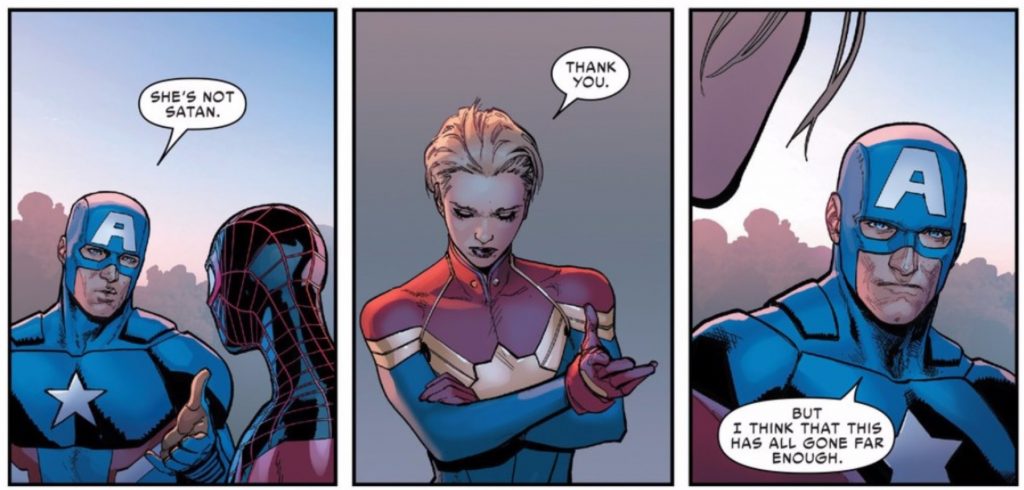
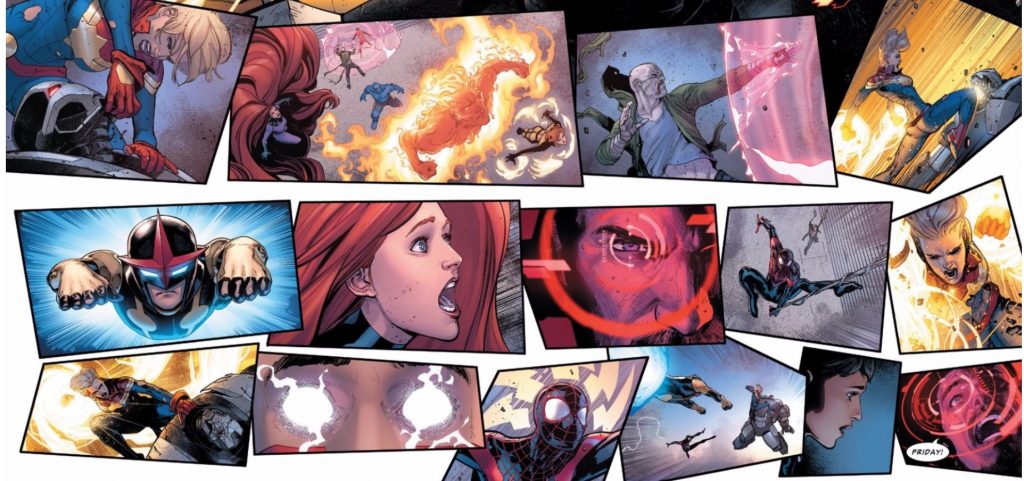
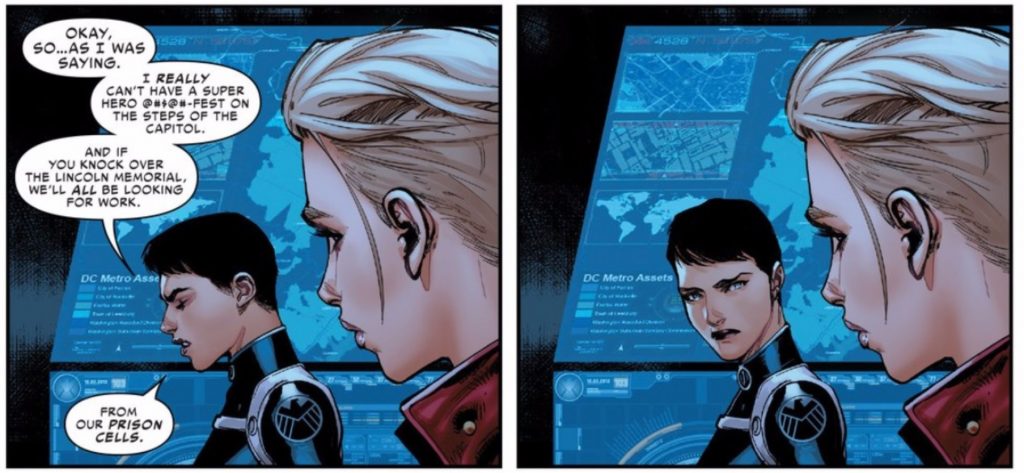
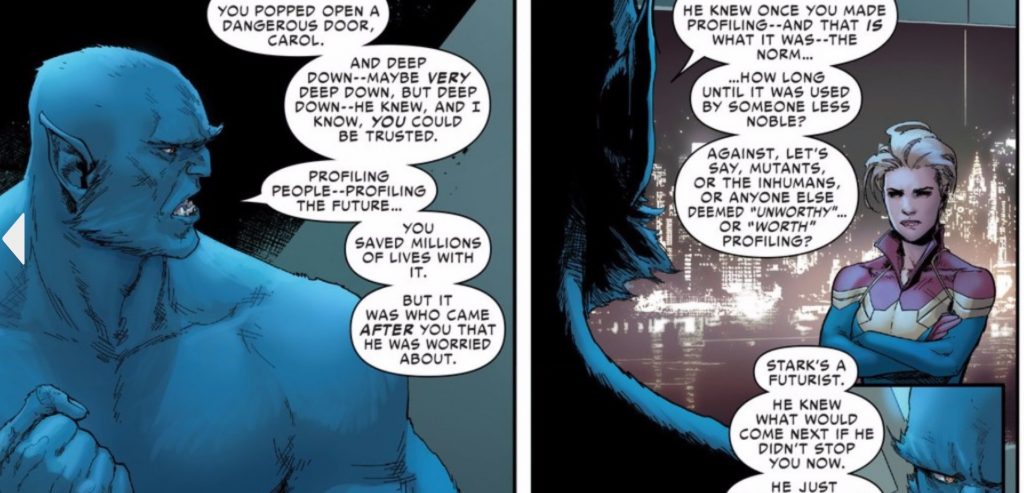
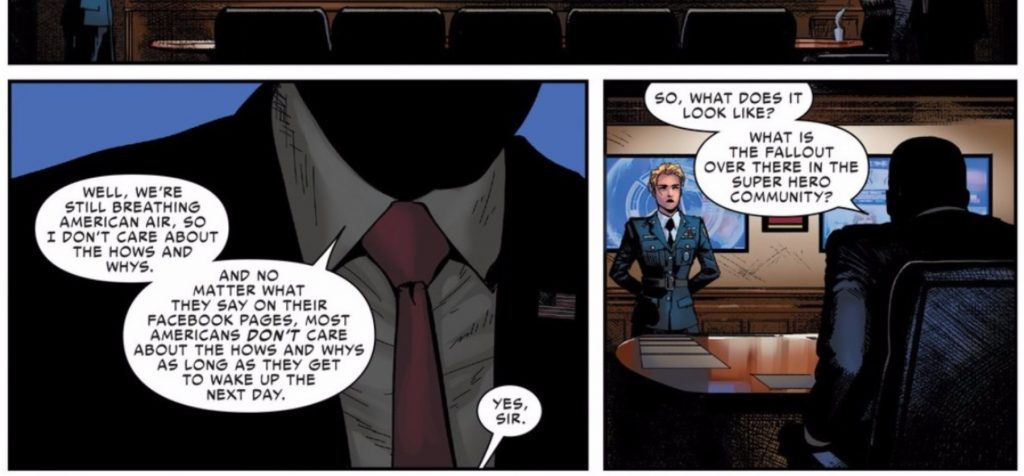
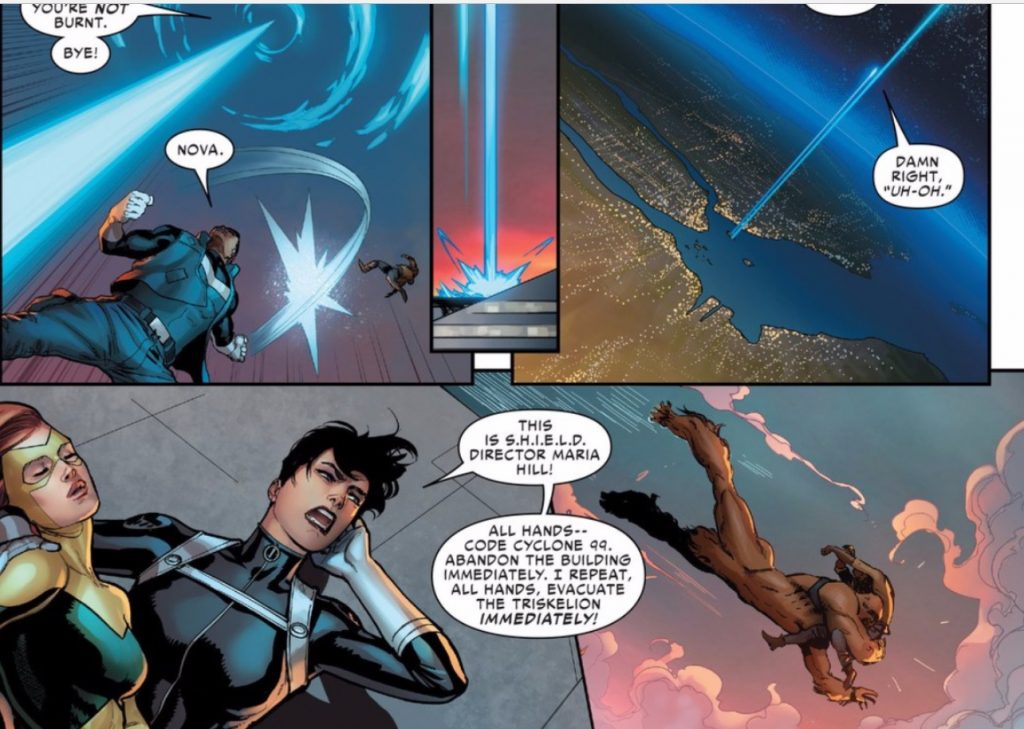
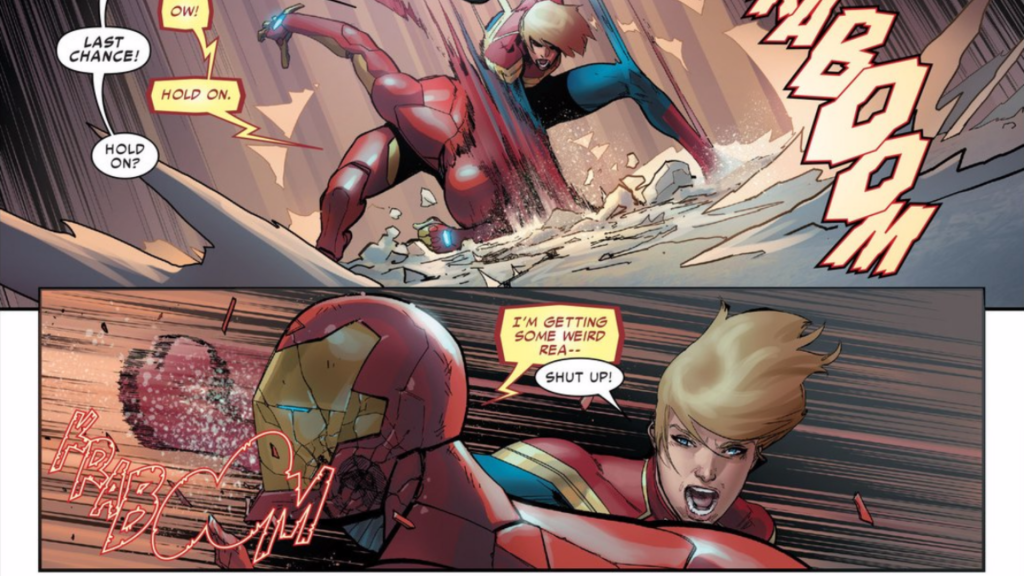




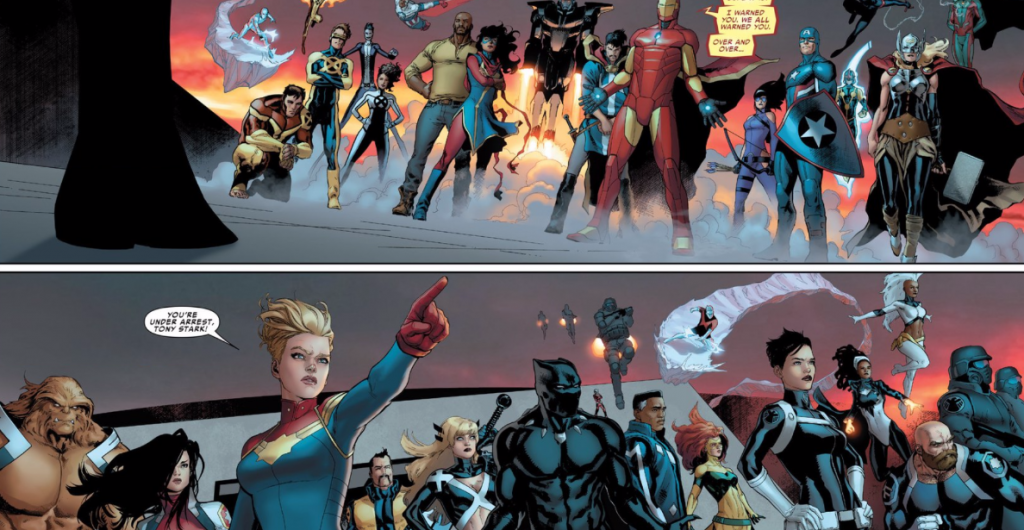
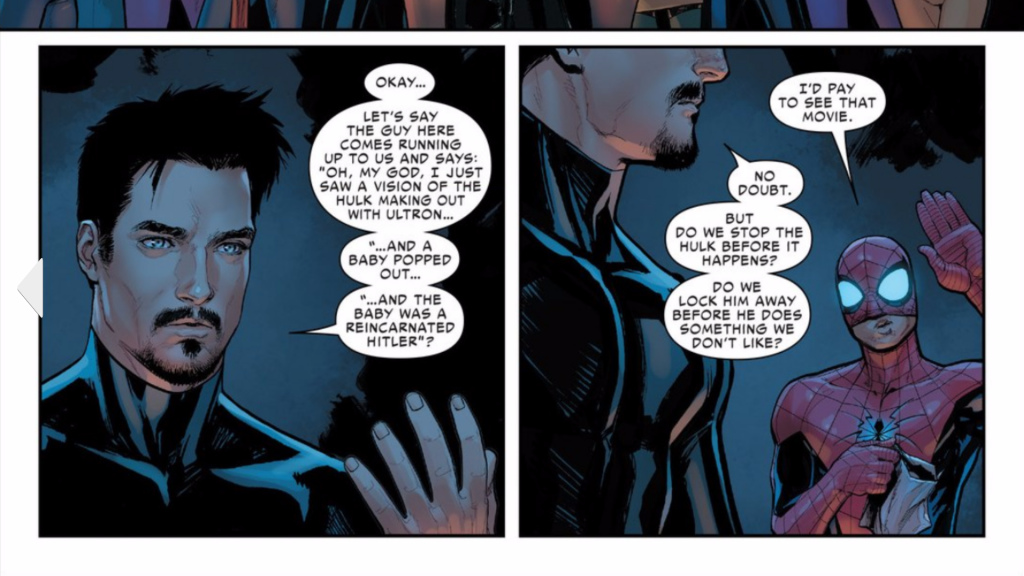
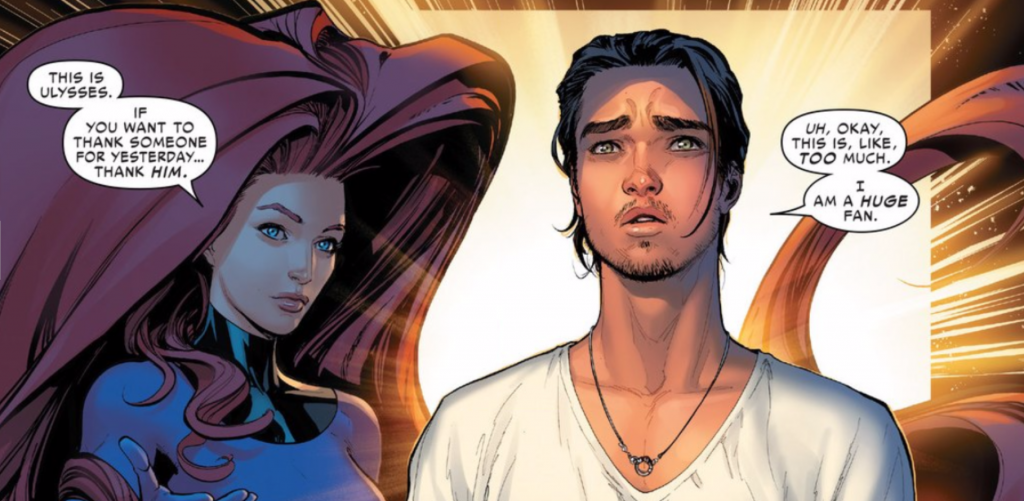
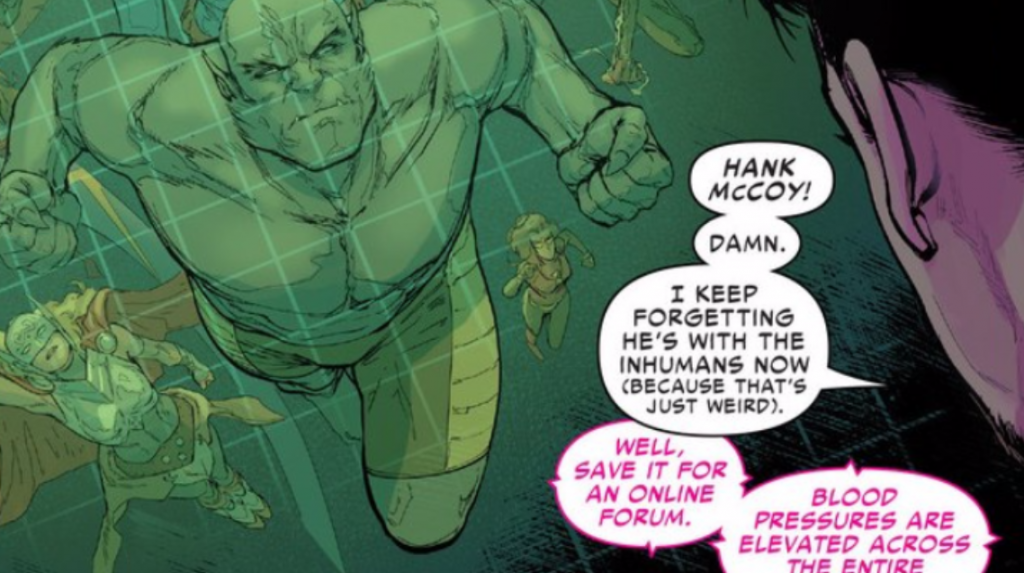
























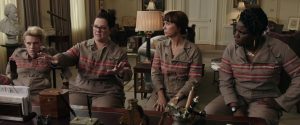















![Secret of the Incas [Charlton Heston] (1954) DVDRip Oldies.avi_snapshot_00.08.58_[2016.05.08_21.12.53]](http://static1.squarespace.com/static/58c6f8b33a041115fb6baf1d/599ccf4de5a68b350fcf931a/599cd9c8e5a68b350fd0e3d9/1503451592721/Secret-of-the-Incas-Charlton-Heston-1954-DVDRip-Oldies.avi_snapshot_00.08.58_2016.05.08_21.12.53-300x217.jpg?format=original)
